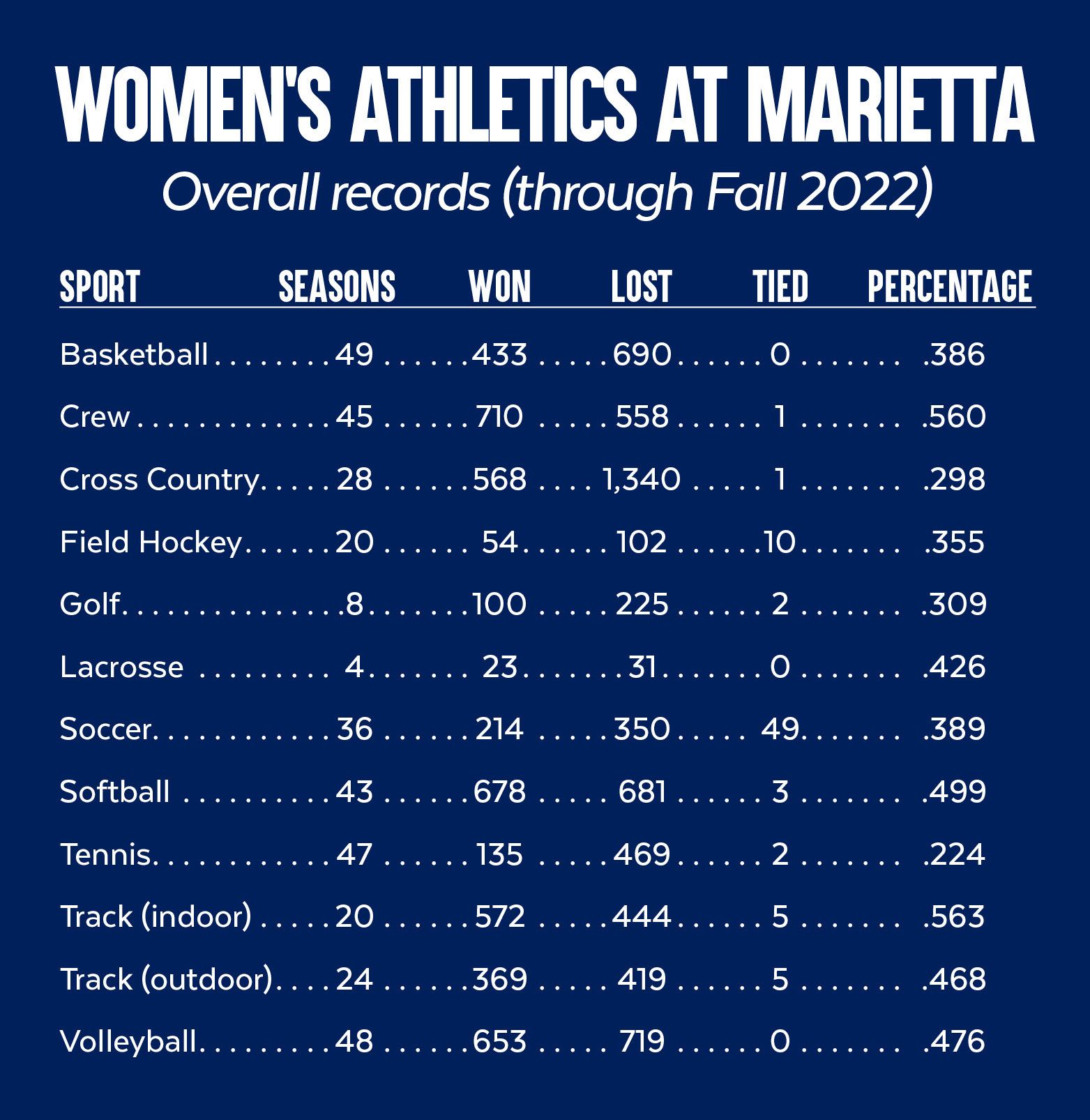Making Progress
Marietta College celebrates the growth of women’s athletics during
the 50th anniversary of Title IX

It would be naïve to believe that women at Marietta College didn’t compete in sports before the Title IX legislation was passed on June 23, 1972.
Flip through the pages of old yearbooks or read past articles in The Marcolian, and you will find evidence of women organizing athletic activities for tennis and basketball. One of those women was Dana Hibbard Khoury ’70.
When she arrived on campus from Wisconsin in 1966, she was shocked to find out there were no organized sports for women. Having been an athlete in high school, Khoury was determined to compete in college — even if it wasn’t a varsity sport. Khoury began posting flyers around campus seeking other women who were interested in forming a field hockey team.
“A bunch of women came out and met me on a field, and we just talked about how we imagined a field hockey program might look,” Khoury says. “I started calling other colleges in the vicinity to see if there was any interest.”
A team was formed, and they played against some nearby colleges and universities. Khoury had to go out hours earlier to prepare the field and put down the chalk lines.
“I was the captain the first year, and then I helped organize an intramural program after that,” Khoury says. “There were a lot of women who wanted to play sports back then.”
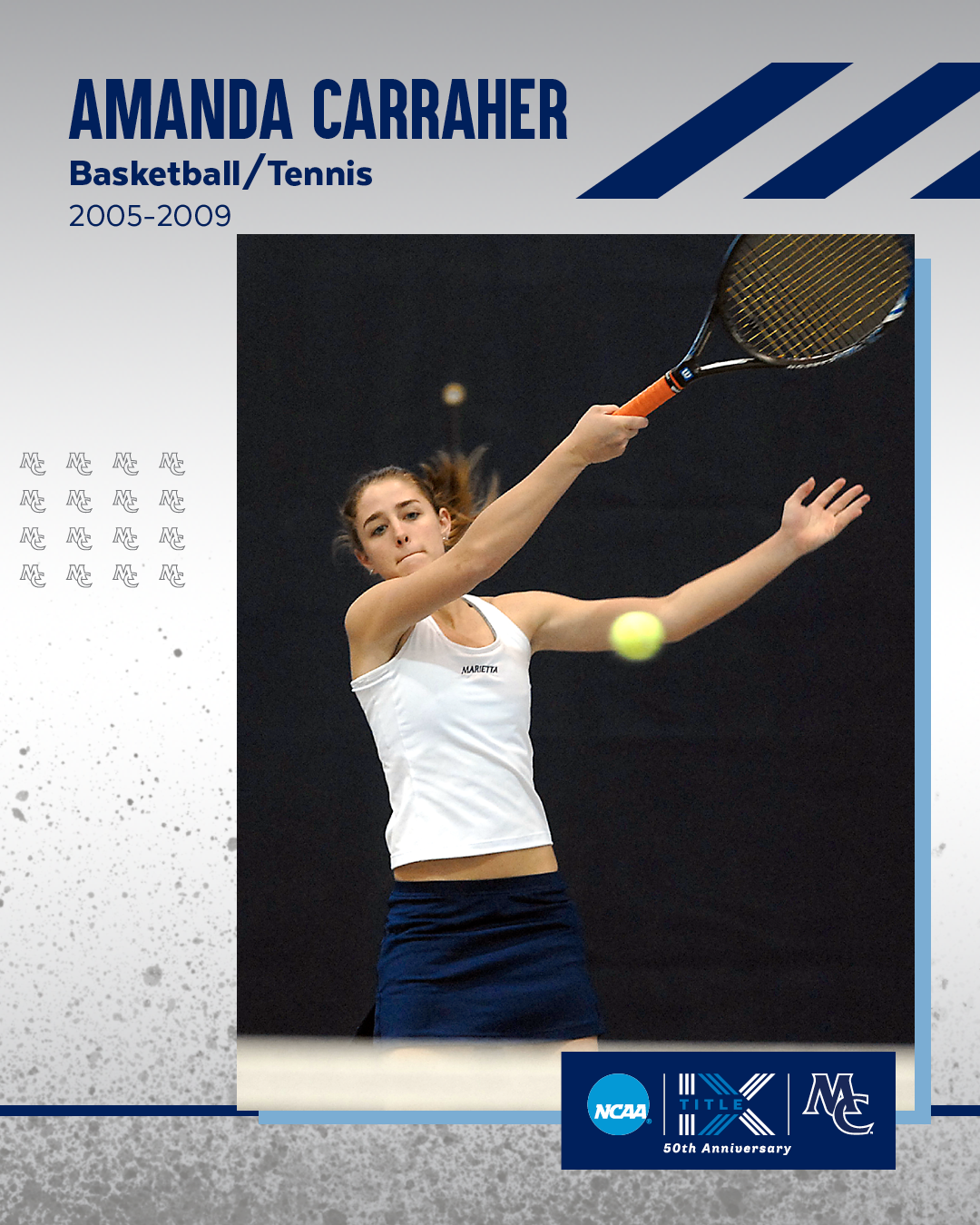
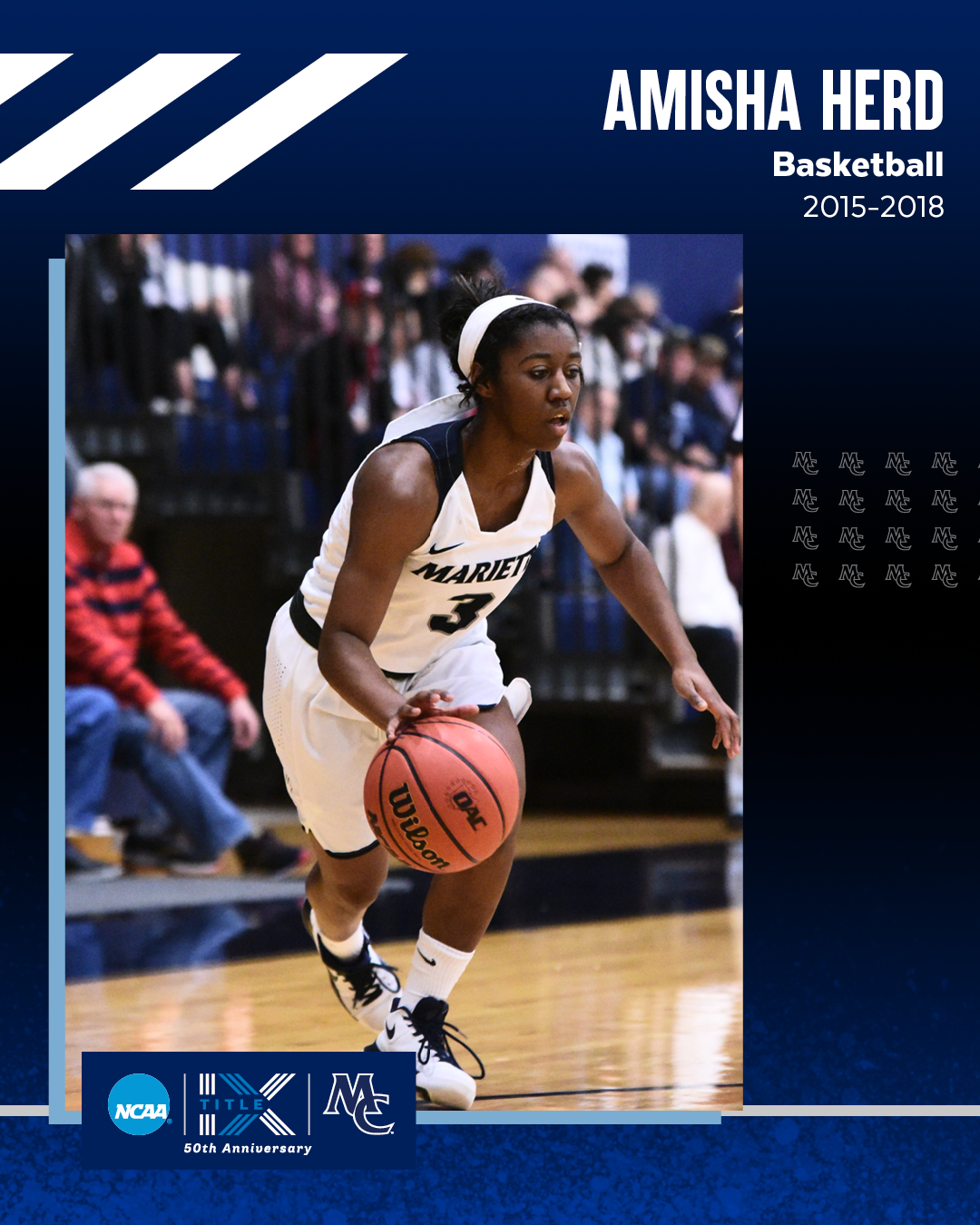
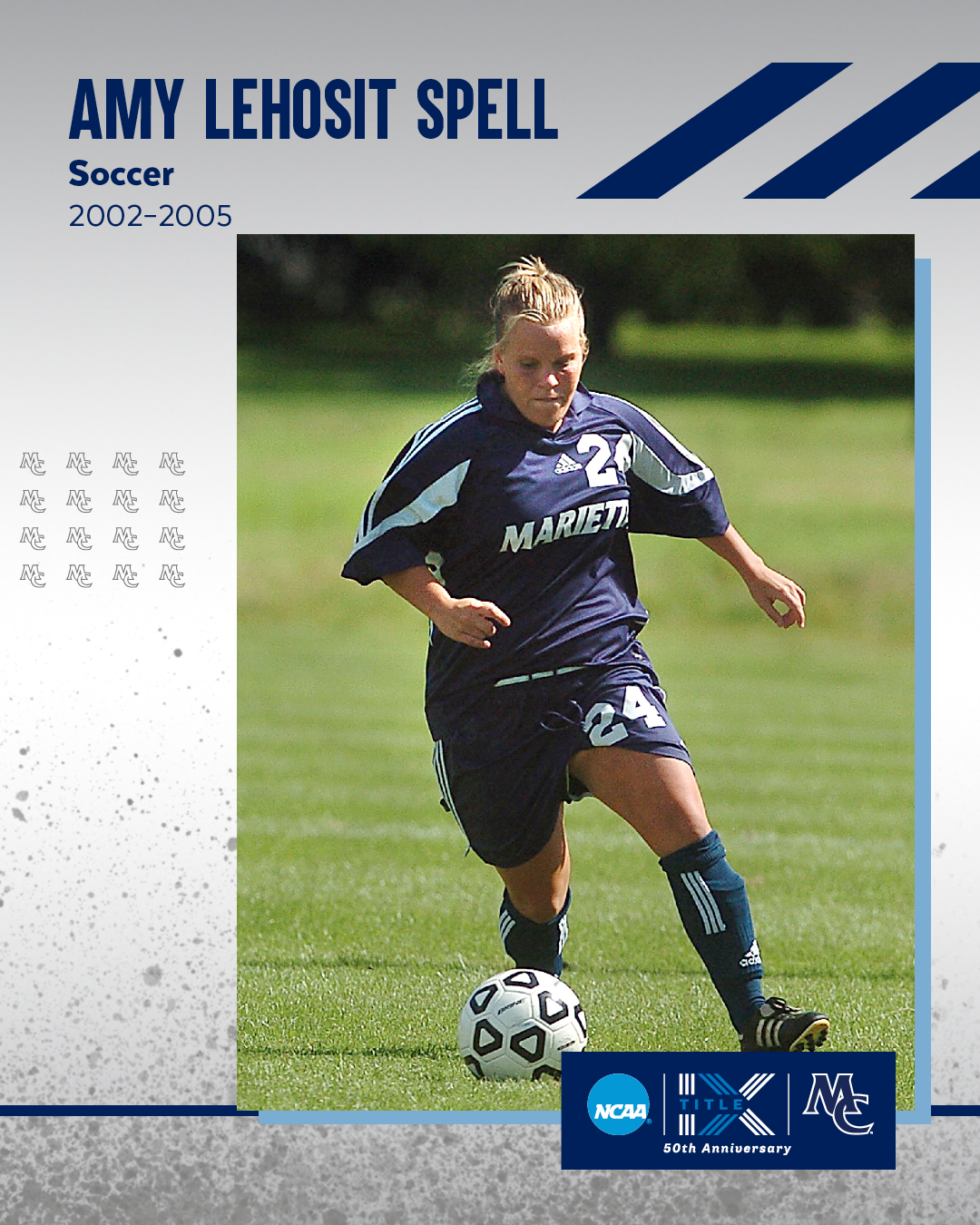
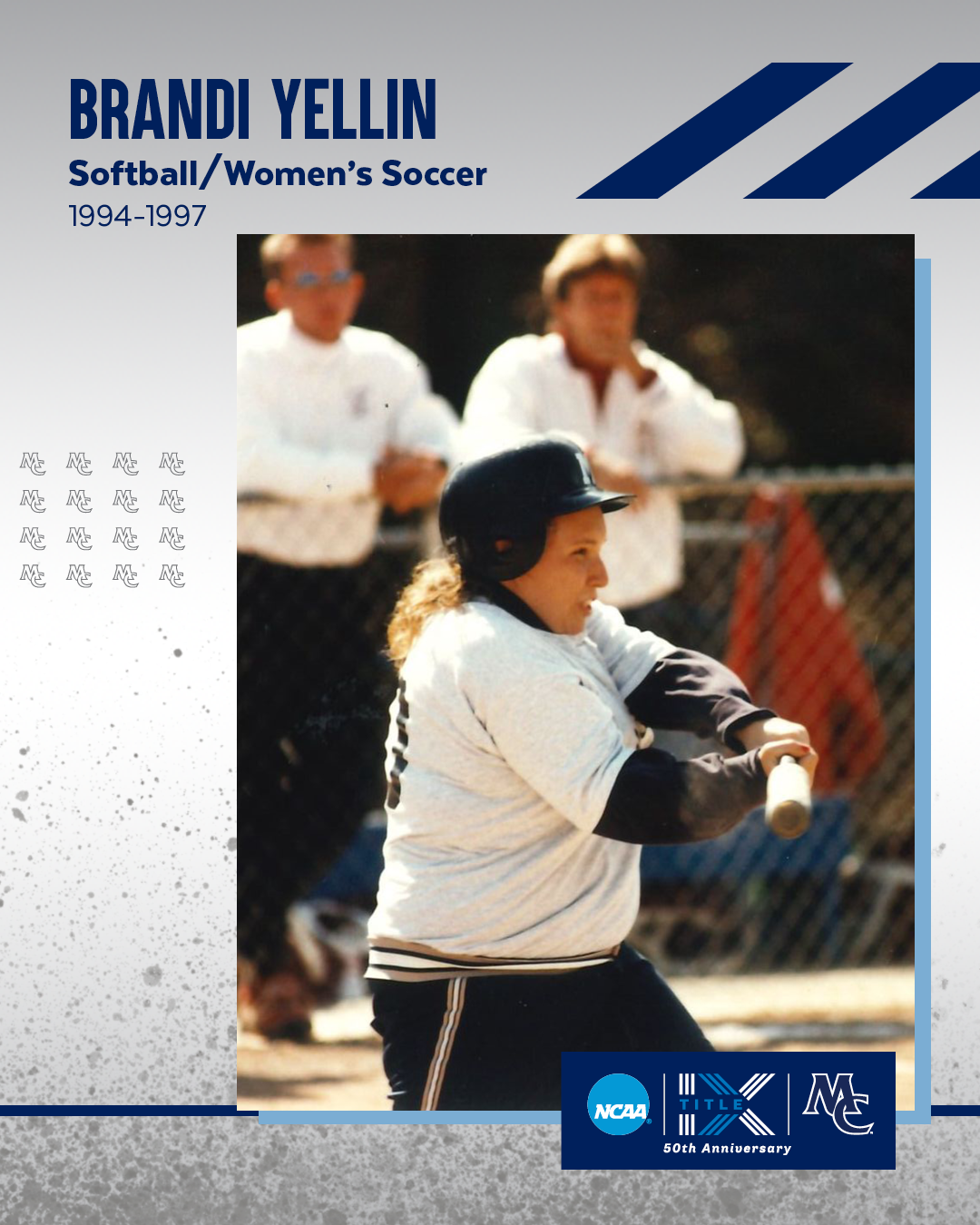
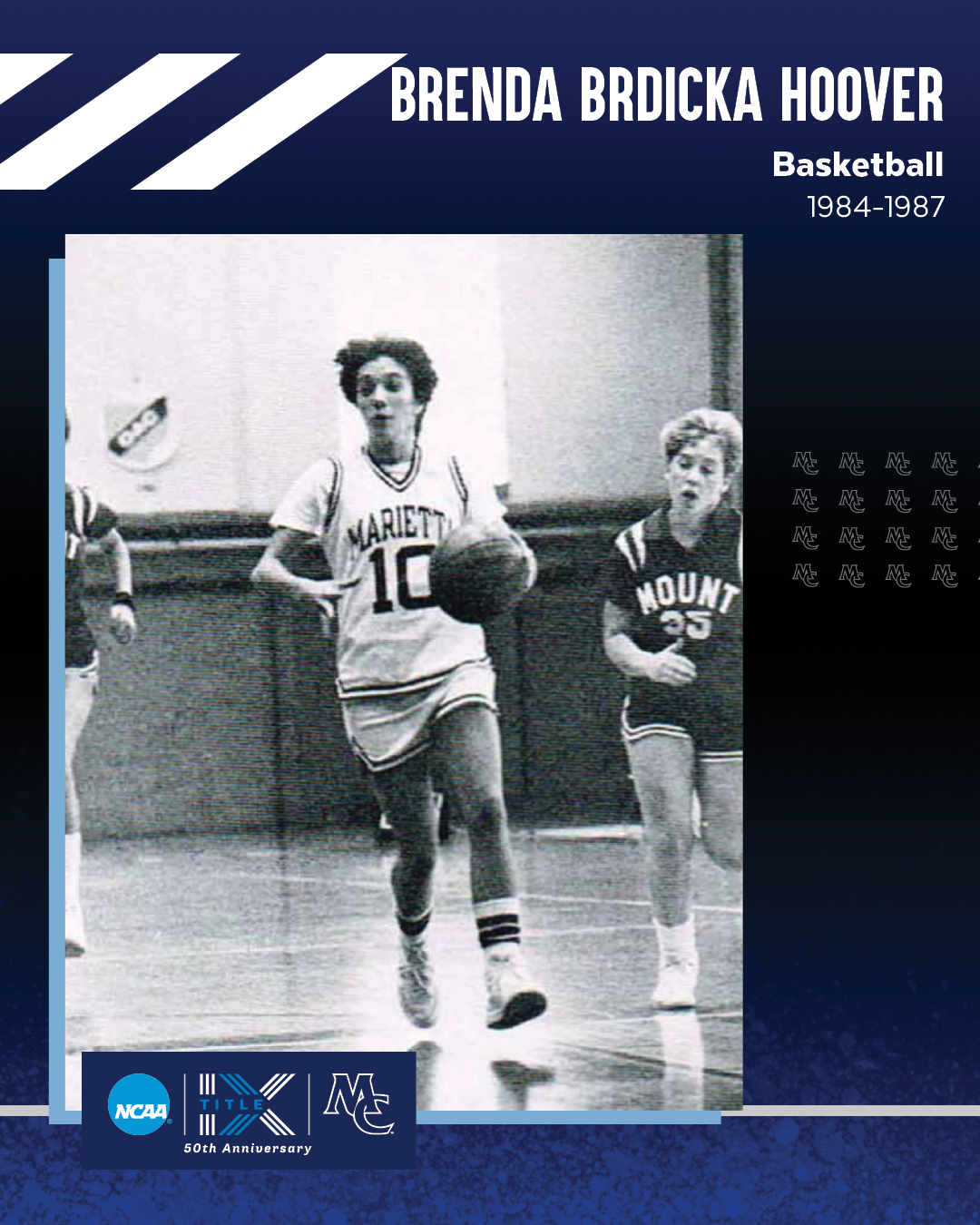
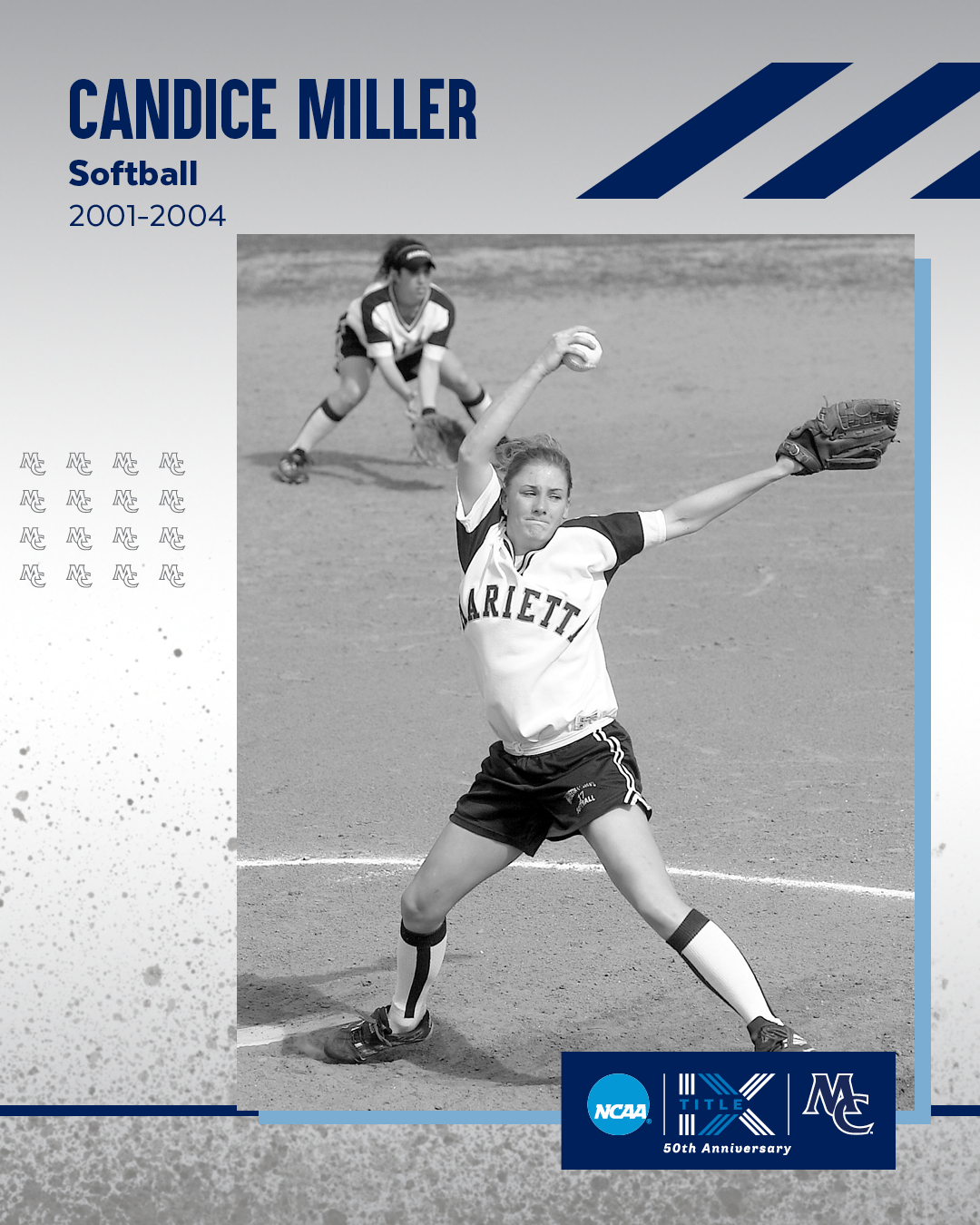
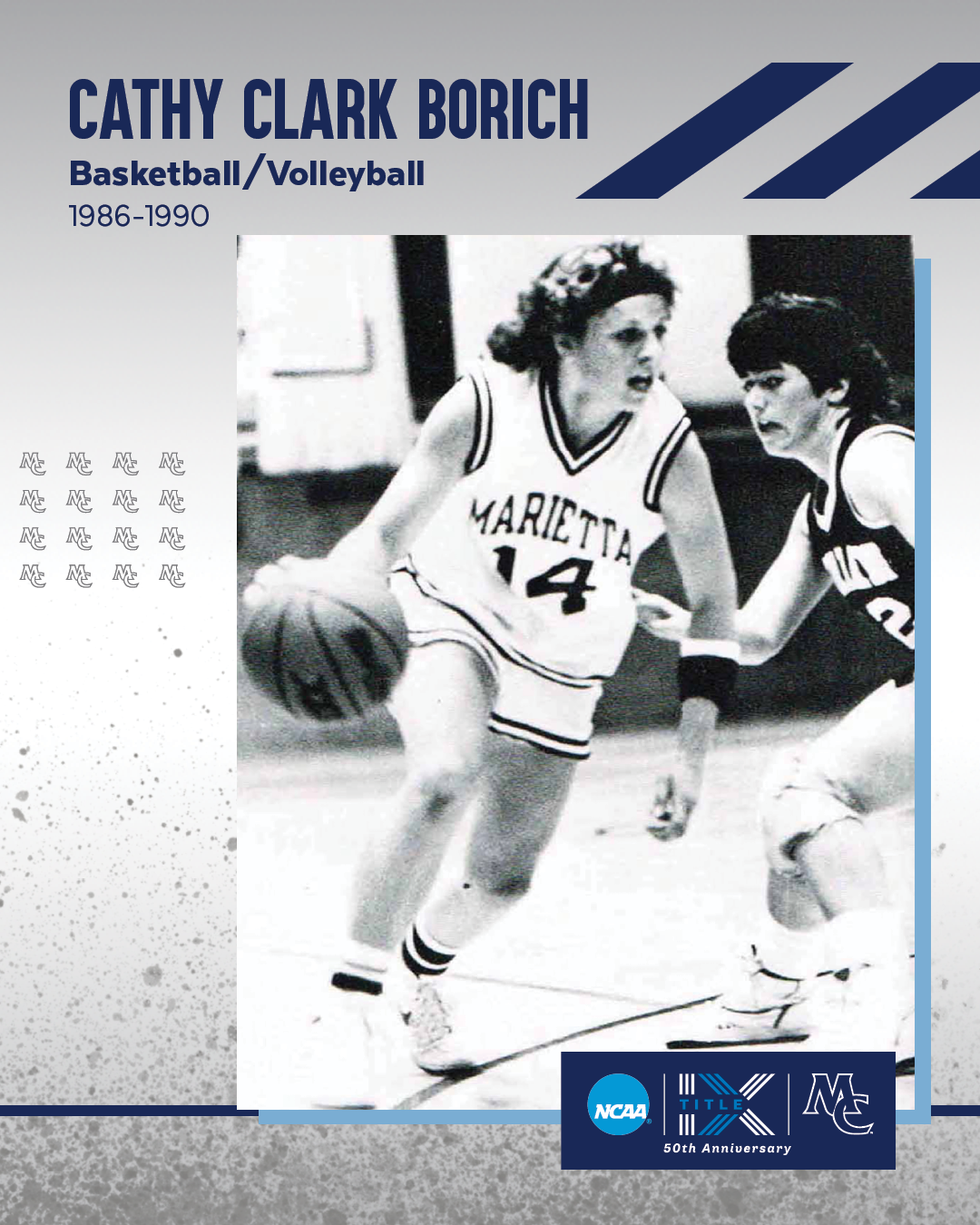
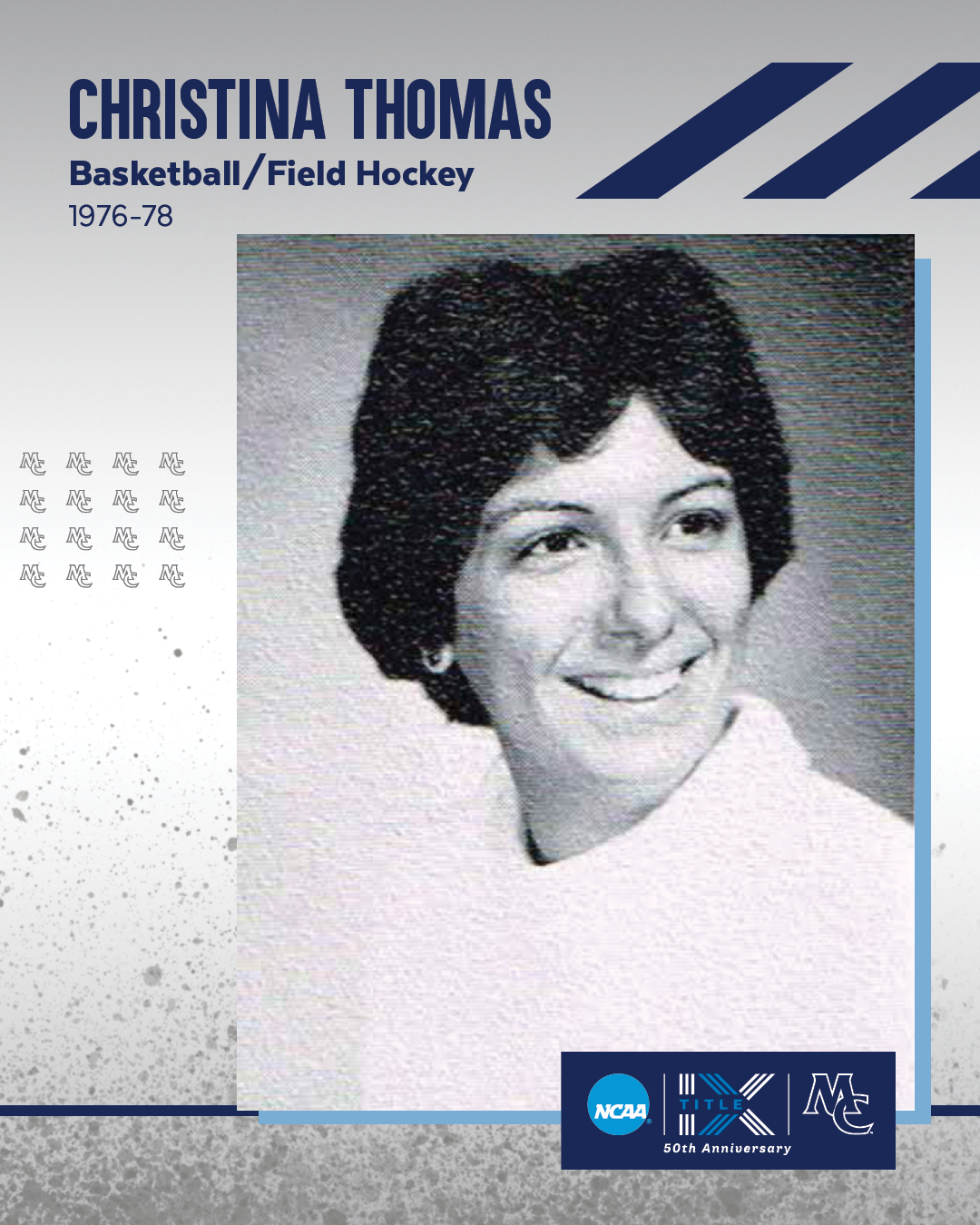

Amanda Carraher ’09 is, without a doubt, the best women’s tennis player in school history. She went 40-5 at No. 1 singles and 28-18 at No. 1 doubles and is the only player in program history to earn All-OAC first-team honors all four years. Also a solid basketball player, she averaged 12.9 points a game her senior year. She is a member of the College’s Athletic Hall of Fame.
Amanda Carraher ’09 is, without a doubt, the best women’s tennis player in school history. She went 40-5 at No. 1 singles and 28-18 at No. 1 doubles and is the only player in program history to earn All-OAC first-team honors all four years. Also a solid basketball player, she averaged 12.9 points a game her senior year. She is a member of the College’s Athletic Hall of Fame.

Only the second women’s basketball player to be recognized as an All-American (honorable mention), Amisha Herd ’18 led the Pioneers to its first OAC championship in women’s basketball after averaging 13.4 points and 4.5 assists a game.
Only the second women’s basketball player to be recognized as an All-American (honorable mention), Amisha Herd ’18 led the Pioneers to its first OAC championship in women’s basketball after averaging 13.4 points and 4.5 assists a game.

A four-year letter winner, Amy Lehosit Spell ’06 earned first-team All-OAC recognition in her final two seasons. She was a second-team selection her sophomore year and an honorable mention her first year. She is the program’s career leader in assists (28), second in points (82), and third in goals (27). She is a member of the College’s Athletic Hall of Fame.
A four-year letter winner, Amy Lehosit Spell ’06 earned first-team All-OAC recognition in her final two seasons. She was a second-team selection her sophomore year and an honorable mention her first year. She is the program’s career leader in assists (28), second in points (82), and third in goals (27). She is a member of the College’s Athletic Hall of Fame.

Brandi Yellin ’97 earned four varsity letters in softball and one in women’s soccer. She was a standout pitcher during one of the best runs in school history. Yellin ranks fourth all-time in several career categories: complete games (47), shutouts (9), and strikeouts (188). She is also fifth in all-time victories with 32. The Pioneers finished first in the OAC regular season during her sophomore and junior seasons. Yellin led Marietta to the 2006 OAC title, and it became the first team to advance to the NCAA tournament in program history. Yellin earned All-OAC recognition from 1995-97 and was a two-time all-region selection. When she wasn't pitching, Yellin played third base, where she played flawless defense committing no errors during her sophomore and junior seasons.
Brandi Yellin ’97 earned four varsity letters in softball and one in women’s soccer. She was a standout pitcher during one of the best runs in school history. Yellin ranks fourth all-time in several career categories: complete games (47), shutouts (9), and strikeouts (188). She is also fifth in all-time victories with 32. The Pioneers finished first in the OAC regular season during her sophomore and junior seasons. Yellin led Marietta to the 2006 OAC title, and it became the first team to advance to the NCAA tournament in program history. Yellin earned All-OAC recognition from 1995-97 and was a two-time all-region selection. When she wasn't pitching, Yellin played third base, where she played flawless defense committing no errors during her sophomore and junior seasons.

The first women’s basketball player to score 1,000 points in a career, Brenda Brdicka Hoover ’87, finished with 1,109. She was named second-team All-OAC during her junior and senior seasons. She is a member of the College’s Athletic Hall of Fame.
The first women’s basketball player to score 1,000 points in a career, Brenda Brdicka Hoover ’87, finished with 1,109. She was named second-team All-OAC during her junior and senior seasons. She is a member of the College’s Athletic Hall of Fame.

One of the top conference pitchers during the early 2000s, Candice Miller ’04 was a two-time first-team All-OAC honoree. During her four years playing for Coach Jeanne Arbuckle, she compiled some impressive stats, including second in a career for wins (41), strikeouts (590), ERA (1.71), and complete games (64). She is a member of the College’s Athletic Hall of Fame.
One of the top conference pitchers during the early 2000s, Candice Miller ’04 was a two-time first-team All-OAC honoree. During her four years playing for Coach Jeanne Arbuckle, she compiled some impressive stats, including second in a career for wins (41), strikeouts (590), ERA (1.71), and complete games (64). She is a member of the College’s Athletic Hall of Fame.

Cathy Clark Borich ’90 was the first Marietta female athlete to earn first-team All-America honors in 1990. Her 2,311 career points in basketball are still the Ohio Athletic Conference record for women’s basketball. She was named the OAC Player of the Year and Academic All-American during her junior and senior seasons. She is a member of the College’s Athletic Hall of Fame, and Borich is considered the greatest women’s basketball player in OAC history.
Cathy Clark Borich ’90 was the first Marietta female athlete to earn first-team All-America honors in 1990. Her 2,311 career points in basketball are still the Ohio Athletic Conference record for women’s basketball. She was named the OAC Player of the Year and Academic All-American during her junior and senior seasons. She is a member of the College’s Athletic Hall of Fame, and Borich is considered the greatest women’s basketball player in OAC history.

Christina Thomas ’78 earned three varsity letters in basketball and field hockey at Marietta after transferring from Ohio Dominican as a sophomore. Thomas was a basketball team captain for two years and was among the team leaders in rebounding and assists. She was also a dependable free-throw shooter. In field hockey, Thomas, a defender, was also a two-year captain. While at Marietta, she helped start the slow-pitch softball team, although it did not become a varsity sport until after she graduated. She is a member of the College’s Athletic Hall of Fame.
Christina Thomas ’78 earned three varsity letters in basketball and field hockey at Marietta after transferring from Ohio Dominican as a sophomore. Thomas was a basketball team captain for two years and was among the team leaders in rebounding and assists. She was also a dependable free-throw shooter. In field hockey, Thomas, a defender, was also a two-year captain. While at Marietta, she helped start the slow-pitch softball team, although it did not become a varsity sport until after she graduated. She is a member of the College’s Athletic Hall of Fame.
Even more are getting a chance to play today, and they owe a debt of gratitude to the women who came before them and the passage of Title IX. Of course, getting equal funding also took some pushing and prodding along the way.
In the early days after Title IX passed, Marietta College wasn’t recruiting student-athletes for women’s sports. Instead, the coaches recruited from the student body, and maybe a few dozen women were on rosters. Today, Marietta has 11 varsity head coaches and an additional 11 assistant coaches who actively recruit players for their rosters. This year there are 186 female student-athletes on varsity rosters, compared to 321 male student-athletes. Naturally, football, with 110 players on the roster, is a big reason for the gender gap.
In the early days, funding was heavily skewed toward men’s programs. In a February 27, 1976, Marcolian article, it states the College spent $55.41 per male athlete and only $6.85 per female athlete. Today the College spends about $1,750 per female student-athlete and $1,400 per male student-athlete.
Kristy Newman, who completed her fifth season as Marietta’s volleyball coach this fall, understands many of today’s student-athletes don’t even know what Title IX is or the impact it had on women’s athletics. In a way, she says that is a positive sign and shows how far things have come. With this year’s celebration, she has felt an obligation to educate them more.
“I try to share with my team that we didn’t always have our own locker room, or we didn’t have this beautiful facility that we have now,” Newman says. “It’s important that our players understand how far things have come and how hard those worked before them to get us to this point.”
The College’s Athletic Department has been celebrating the 50th anniversary since July 1, 2022, and will continue to do so through June 30, 2023. According to Athletic Director Larry Hiser, one of the goals was to educate today’s student-athletes about Title IX. The department has been doing this by hosting showings of ESPN’s “37 Words,” a docuseries about Title IX, during the fall semester. The department also had special tents that were hosted by women’s athletes during Homecoming, while the College has been producing podcasts, social media posts, and alumni emails.
Hiser is also excited that the Athletics Department is hosting the inaugural Etta Awards on March 23rd, and the featured speaker is former Ohio State great and WNBA legend Katie Smith.
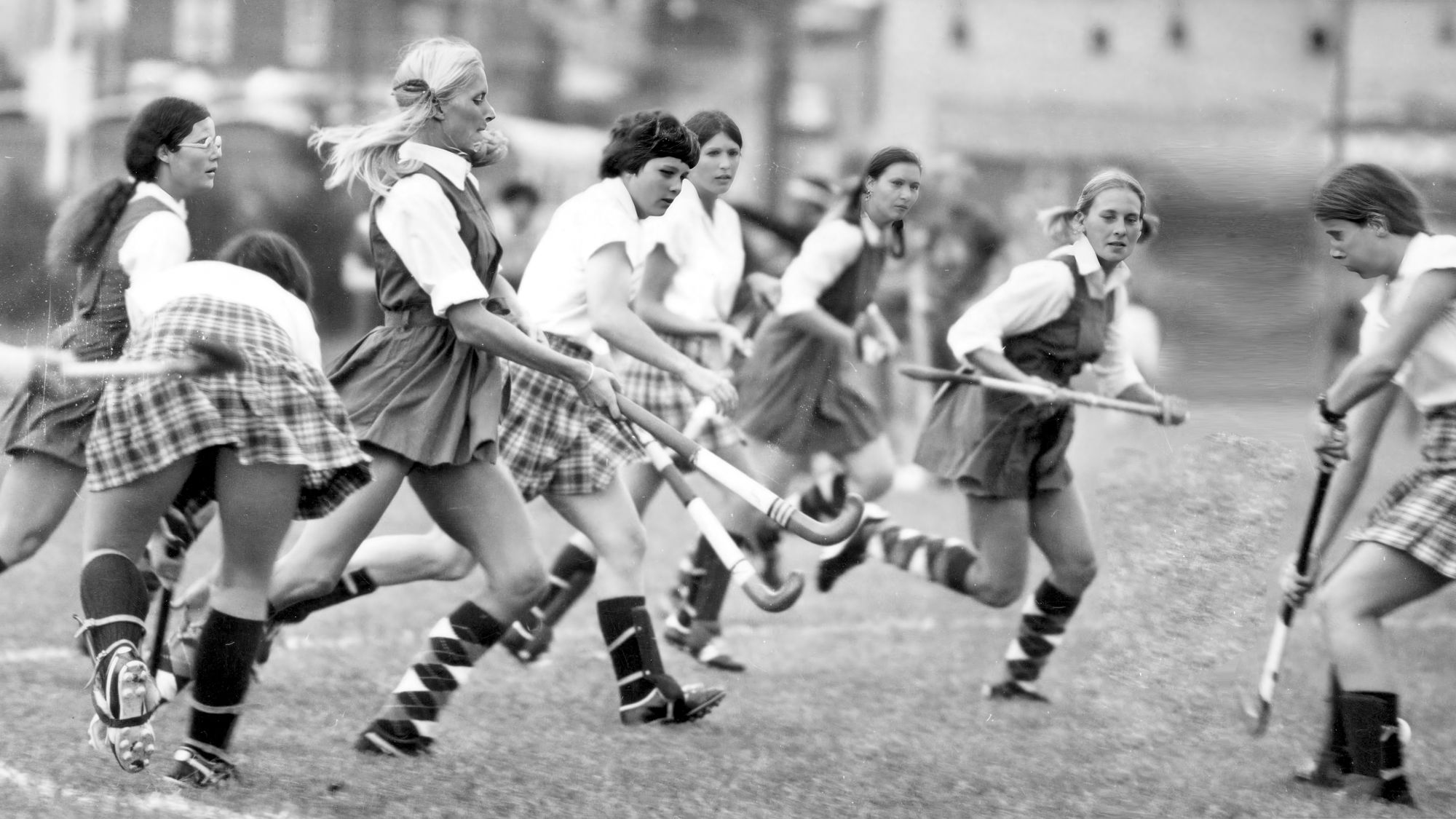
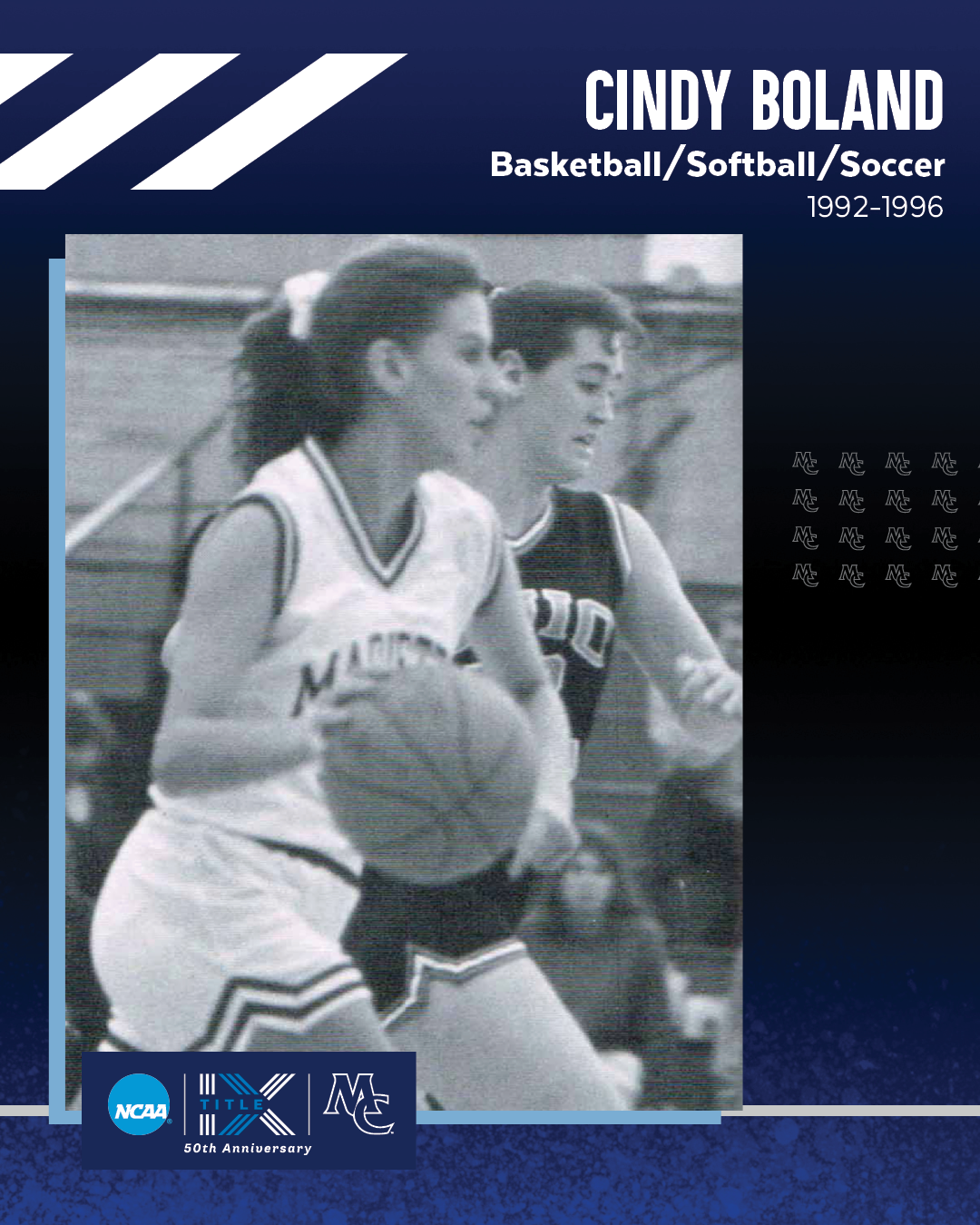
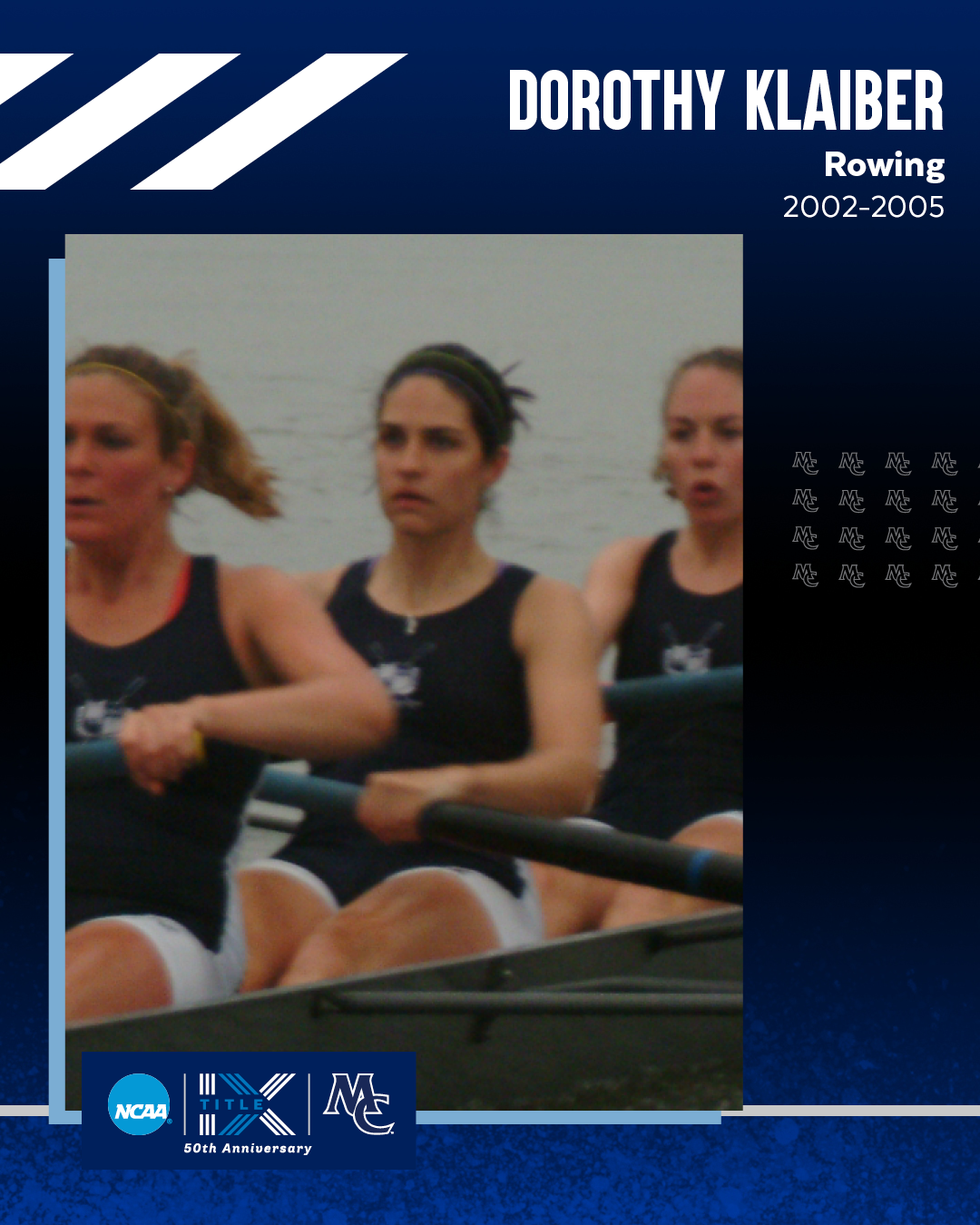
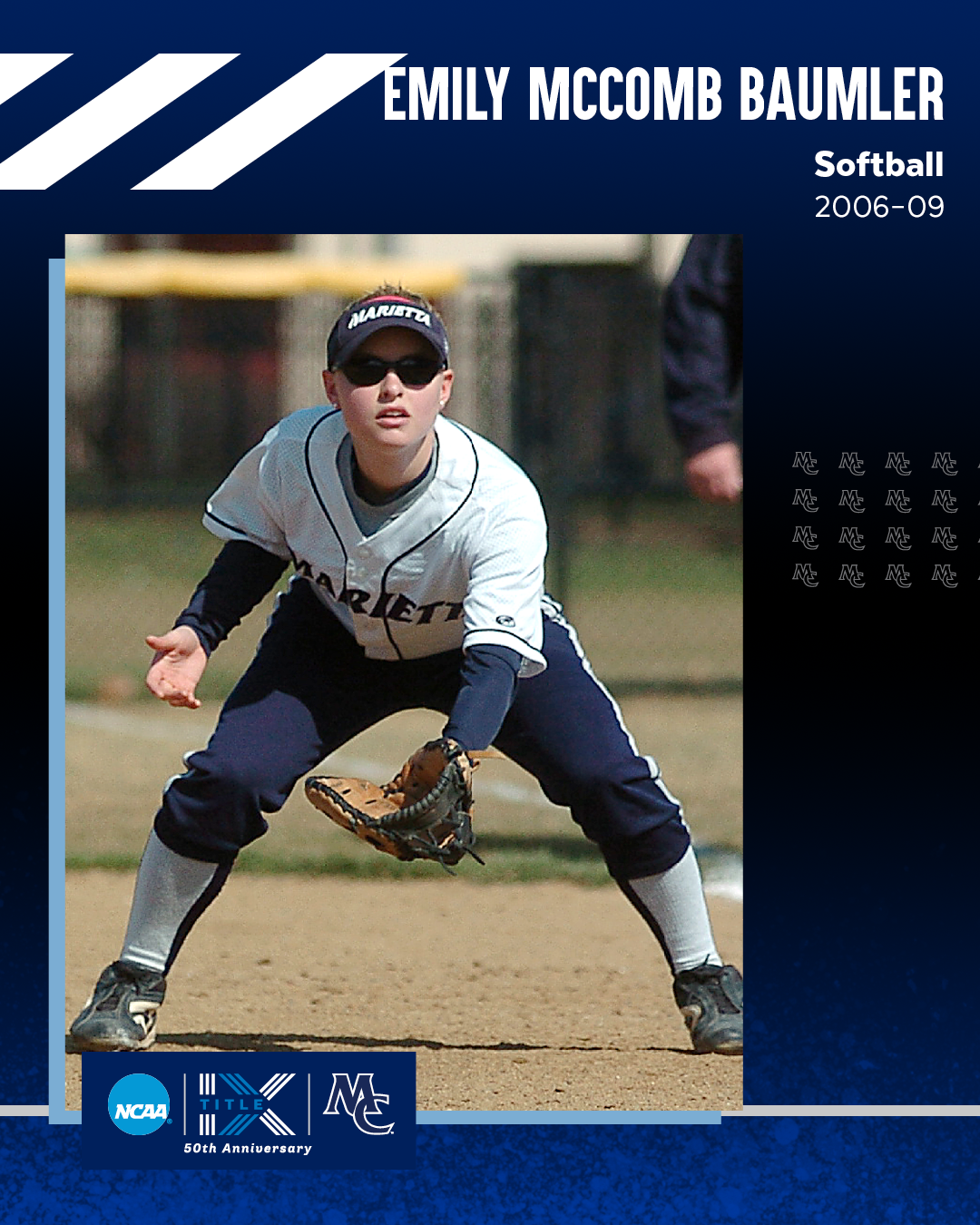
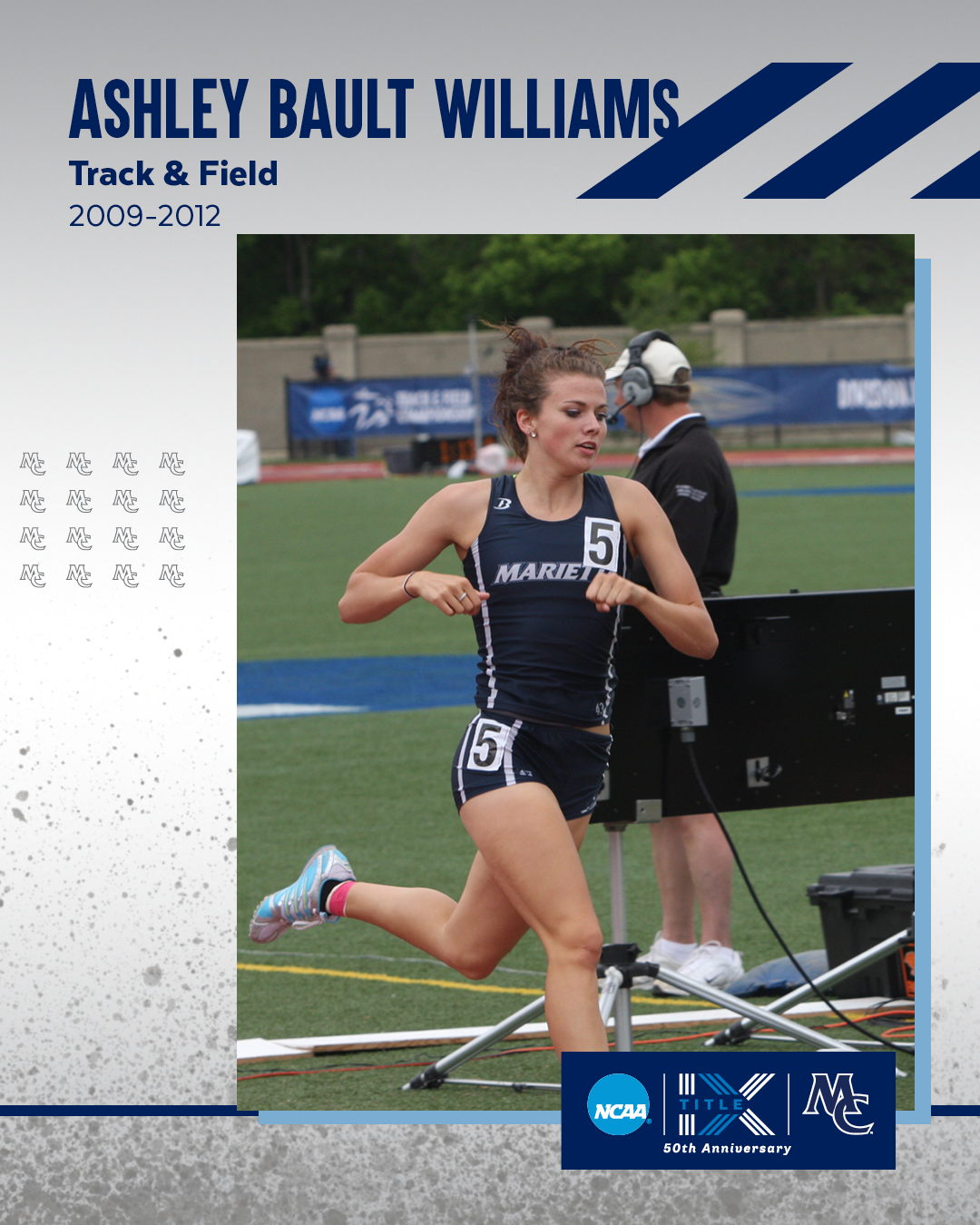
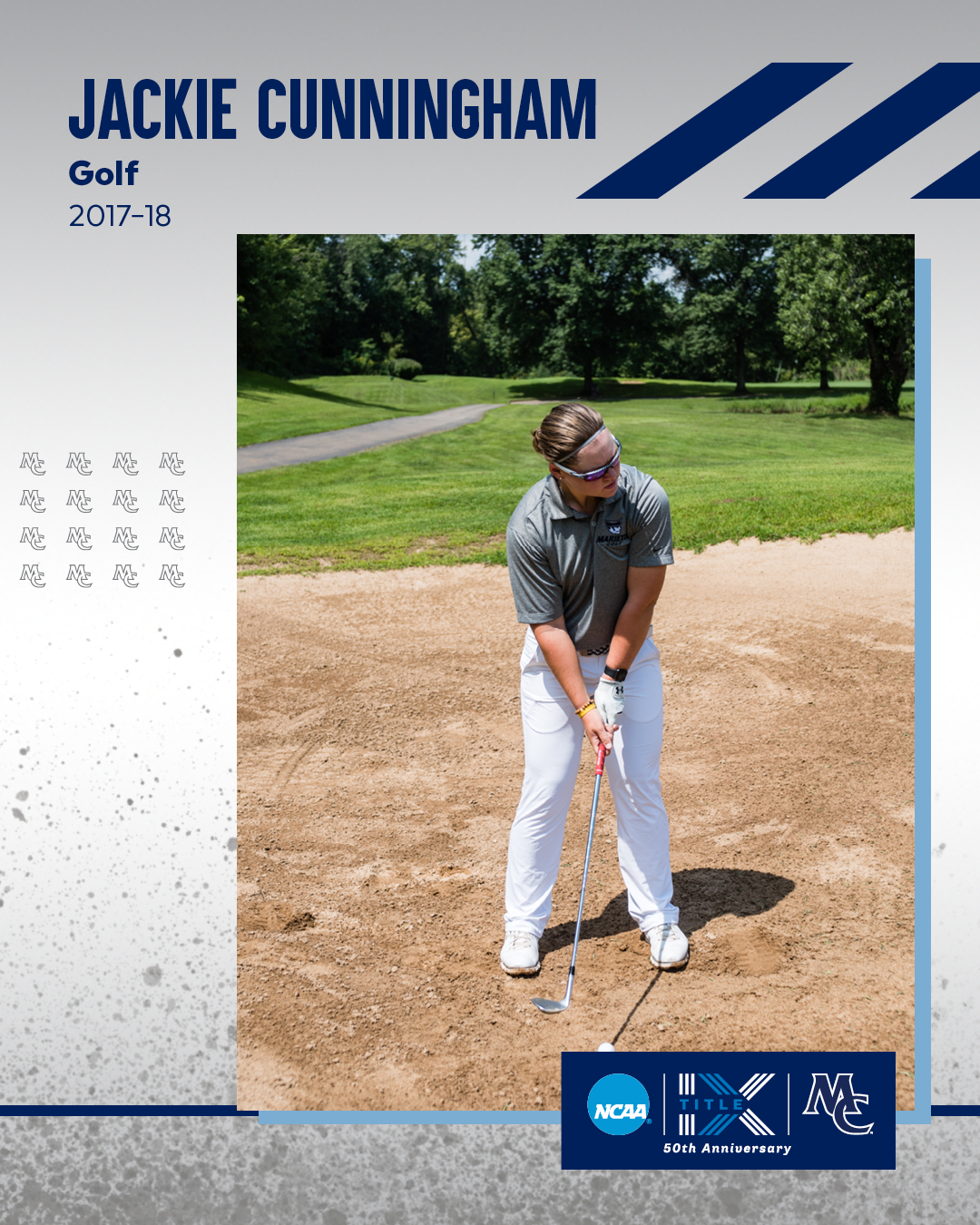
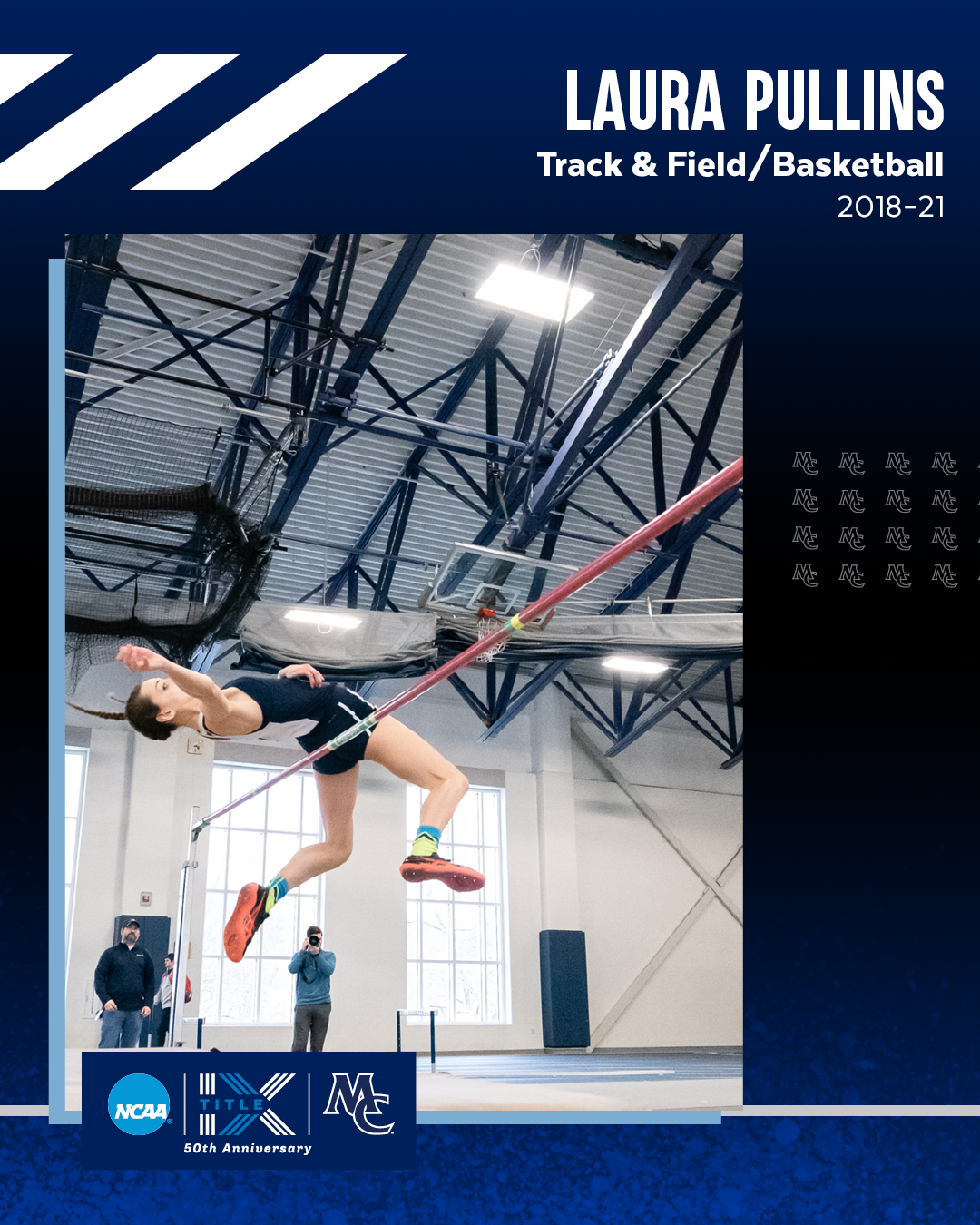
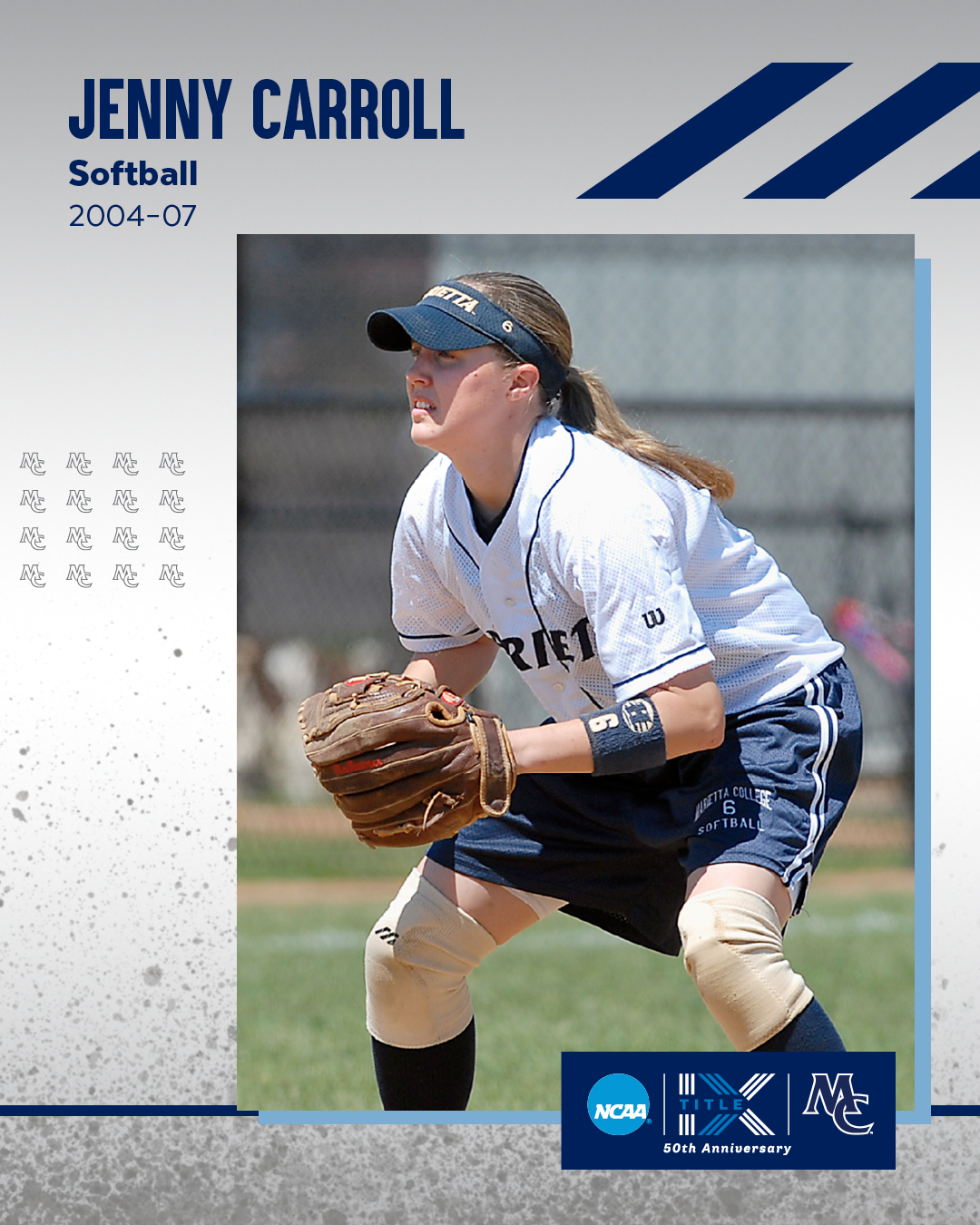
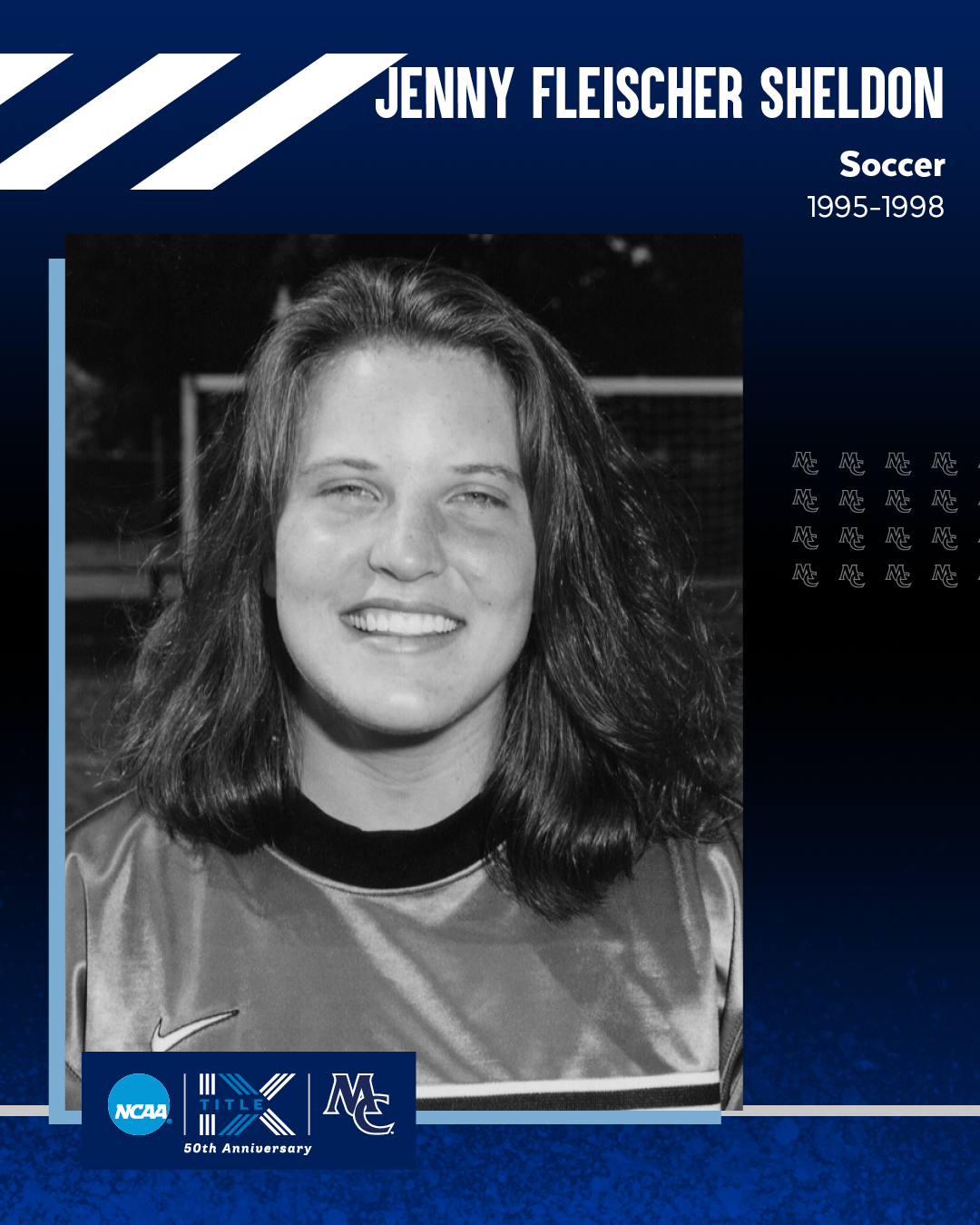

A first-team All-Region honoree her junior season and a career .388 hitter, Cindy Boland ’96 was a key member of the 1996 team that won the OAC and reached the NCAA tournament. She is the only player in school history to go 5-for-5 in a game, accomplishing the feat against Ohio Northern in 1993. She is a member of the College’s Athletic Hall of Fame.
A first-team All-Region honoree her junior season and a career .388 hitter, Cindy Boland ’96 was a key member of the 1996 team that won the OAC and reached the NCAA tournament. She is the only player in school history to go 5-for-5 in a game, accomplishing the feat against Ohio Northern in 1993. She is a member of the College’s Athletic Hall of Fame.

Dorothy Klaiber ’05 was captain for the Pioneers from 2003-05 and won the Betty Cleland Award in 2005. She was a member of Marietta’s gold medal-winning crew in the Division II/III Varsity Heavyweight 8+ at the 2004 Dad Vail Championship. Klaiber also won silver in 2005. Klaiber earned Collegiate Rowing Coaches Association second team All-American honors in 2003 and 2004 and was a first team All-American in 2005. She is a member of the College’s Athletic Hall of Fame.
Dorothy Klaiber ’05 was captain for the Pioneers from 2003-05 and won the Betty Cleland Award in 2005. She was a member of Marietta’s gold medal-winning crew in the Division II/III Varsity Heavyweight 8+ at the 2004 Dad Vail Championship. Klaiber also won silver in 2005. Klaiber earned Collegiate Rowing Coaches Association second team All-American honors in 2003 and 2004 and was a first team All-American in 2005. She is a member of the College’s Athletic Hall of Fame.

While playing for Coach Jeanne Arbuckle, Emily McComb Baumler ’09 was a four-year varsity letter winner at first base. She was a two-time All-Region player earning third team recognition in 2008 and second team honors in 2009. In addition, McComb was named second team All-OAC in 2008 and first team in 2009. She was a fixture in the Pioneer lineup during the best four-year run in program history as Marietta went 111-49, was runner-up in the 2006 and 2007 OAC Tournaments, and made the NCAA Tournament in 2007, winning a program record 34 games.
While playing for Coach Jeanne Arbuckle, Emily McComb Baumler ’09 was a four-year varsity letter winner at first base. She was a two-time All-Region player earning third team recognition in 2008 and second team honors in 2009. In addition, McComb was named second team All-OAC in 2008 and first team in 2009. She was a fixture in the Pioneer lineup during the best four-year run in program history as Marietta went 111-49, was runner-up in the 2006 and 2007 OAC Tournaments, and made the NCAA Tournament in 2007, winning a program record 34 games.

A 14-time NCAA qualifier, Ashley Bault Williams ’12 became the first track athlete in program history to medal at the NCAA championships. She was the national runner-up in the pentathlon at the 2012 NCAA indoor championships and then finished third in the heptathlon at the 2012 NCAA outdoor championships. Williams earned All-America honors seven times in her career and was an eight-time All-Ohio selection. She was named the United States Track & Field and Cross Country Coaches Association Great Lakes Region Field Athlete of the Year three times.
A 14-time NCAA qualifier, Ashley Bault Williams ’12 became the first track athlete in program history to medal at the NCAA championships. She was the national runner-up in the pentathlon at the 2012 NCAA indoor championships and then finished third in the heptathlon at the 2012 NCAA outdoor championships. Williams earned All-America honors seven times in her career and was an eight-time All-Ohio selection. She was named the United States Track & Field and Cross Country Coaches Association Great Lakes Region Field Athlete of the Year three times.

For one amazing season, Jackie Cunningham dominated the Ohio Athletic Conference in golf as she shot a three-day total of 220 (74-74-72) for medalist honors and finished 22 strokes better than the second-place finisher in the conference tournament. “She was a Division I talent at what was then a Division III start-up,” said golf coach Tom Arison.
For one amazing season, Jackie Cunningham dominated the Ohio Athletic Conference in golf as she shot a three-day total of 220 (74-74-72) for medalist honors and finished 22 strokes better than the second-place finisher in the conference tournament. “She was a Division I talent at what was then a Division III start-up,” said golf coach Tom Arison.

Laura Pullins ’21, a four-time Academic All-American, is one of the best high jumpers in Marietta and OAC history. Pullins is a two-time NCAA Division III national runner-up, a three-time All-American, a five-time OAC Championship, and holds the school record for both the indoor and outdoor high jump. She also played one season of basketball.
Laura Pullins ’21, a four-time Academic All-American, is one of the best high jumpers in Marietta and OAC history. Pullins is a two-time NCAA Division III national runner-up, a three-time All-American, a five-time OAC Championship, and holds the school record for both the indoor and outdoor high jump. She also played one season of basketball.

Jenny Carroll ’07 was a four-year letter winner in softball for Hall of Fame Coach Jeanne Arbuckle. She was a two-time All-Region shortstop earning second team honors in 2006 and first team recognition in 2007. A three-time team captain, Carroll was a key component of Marietta’s 2006 and 2007 OAC Tournament Runner-up teams. The 2007 team went on to the NCAA Regional Tournament and finished with a program record of 34 wins. Carroll earned All-OAC second team honors in 2006 and was a first team selection in 2007. She was named Academic All-OAC both seasons and was a COSIDA ESPN the Magazine Academic All-District honoree in 2007.
Jenny Carroll ’07 was a four-year letter winner in softball for Hall of Fame Coach Jeanne Arbuckle. She was a two-time All-Region shortstop earning second team honors in 2006 and first team recognition in 2007. A three-time team captain, Carroll was a key component of Marietta’s 2006 and 2007 OAC Tournament Runner-up teams. The 2007 team went on to the NCAA Regional Tournament and finished with a program record of 34 wins. Carroll earned All-OAC second team honors in 2006 and was a first team selection in 2007. She was named Academic All-OAC both seasons and was a COSIDA ESPN the Magazine Academic All-District honoree in 2007.

Jenny Fleischer ’99 was a four-year starter in goal and shares the school record for saves in a game with 26 and is second all-time with 580 saves. She also recorded 23 career shutouts. She earned second-team All-OAC honors all four years.
Jenny Fleischer ’99 was a four-year starter in goal and shares the school record for saves in a game with 26 and is second all-time with 580 saves. She also recorded 23 career shutouts. She earned second-team All-OAC honors all four years.
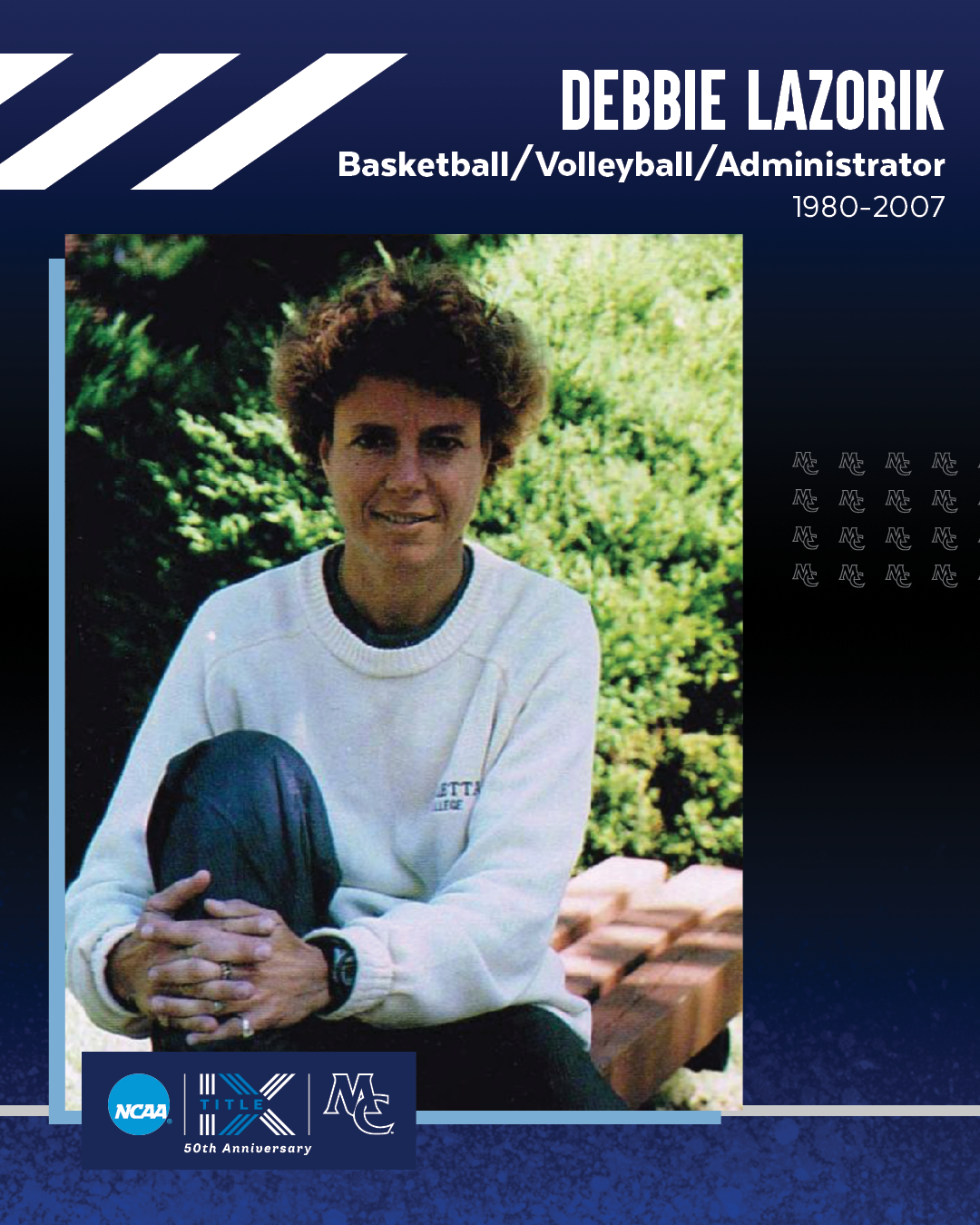
Debbie Lazorik became the coach for basketball and volleyball in 1980. She coached volleyball for seven seasons, winning 118 matches. On the hardwood, Lazorik coached for 11 seasons and was forced out of “retirement” for the 1995-96 season when a late coaching departure left the Pioneers without a coach. Lazorik is Marietta’s all-time leader in wins with 131. Lazorik took over as Marietta’s Director of Athletics in the Fall of 1989 and held the position through the 2006-07 school year. She is a member of the College’s Athletic Hall of Fame.
Debbie Lazorik became the coach for basketball and volleyball in 1980. She coached volleyball for seven seasons, winning 118 matches. On the hardwood, Lazorik coached for 11 seasons and was forced out of “retirement” for the 1995-96 season when a late coaching departure left the Pioneers without a coach. Lazorik is Marietta’s all-time leader in wins with 131. Lazorik took over as Marietta’s Director of Athletics in the Fall of 1989 and held the position through the 2006-07 school year. She is a member of the College’s Athletic Hall of Fame.
You could argue that no one has worked harder at equality in athletics at Marietta College than Debbie Lazorik, who served as the Director of Athletics from 1989-2007. As the first female athletic director in the Ohio Athletic Conference, Lazorik understood her role as an advocate for women’s athletics.
“I always tried my best never to use the Title IX card. Instead, I tried to put together a solid plan and an even better argument for why we should do something that improved women’s athletics at the College,” Lazorik says. “In the end, I knew it was the right thing to do. I’m a faith-driven person, and I live my life to do things right. Title IX is the right thing to do, and our female student-athletes deserved it.”
Lazorik joined the College in 1980 to coach volleyball and women’s basketball. An athlete in her own right, Lazorik didn’t have many opportunities to compete. However, she discovered a love of coaching after working as an assistant coach for one season under legendary coach Gordie Gillespie at St. Francis University in Illinois.
“I learned how to be a coach working with Gordie,” she says. “He is a big reason why I became a coach and enjoyed a wonderful career at Marietta.”
When she arrived, the teams traveled by van, the equipment was typically a hand-me-down from a men’s team, and there were no assistant coaches. Lazorik was not deterred, and she followed the lead of the men’s teams and put together a recruiting plan.
“We started to look like the men. I learned from Coach (Don) Schaly. I asked him to help me with recruiting,” she says. “We brought in a class that had some talent and that’s what had to happen if we wanted to be taken seriously.”
People started to take notice, and the recruiting classes got bigger and better. Now the basketball roster featured talented women like Kim Brown Augustine ’89, Cathy Clark Borich ’90, and Lisa Wagner ’94. Another big-name recruit was Brenda Brdicka Hoover ’87, the College’s first 1,00-point scorer in women’s basketball.
“I was a tomboy my whole life, and when I was younger, I didn’t have the same opportunities that the girls do today,” Hoover says. “But I wouldn’t change a thing. My time at Marietta College was special. We had the support of the student body, and many of my teammates remain some of my best friends to this day.”
While field hockey has been around since 1966, basketball was the first varsity women’s team in 1974. That was followed by volleyball in 1975, tennis in 1976, and crew in 1977. In the 1980s, Marietta added cross country (1981), soccer (1987), and track (1987).
With women’s athletics growing, Lazorik says they started facing backlash.
“The women were starting to encroach on Ban Johnson, and the men didn’t like it,” she says. “Then, when we were sitting at meetings about women going into the Ohio Athletic Conference, it gave us a profile, and we had to look somewhat similar because we’re all in the same conference together.”
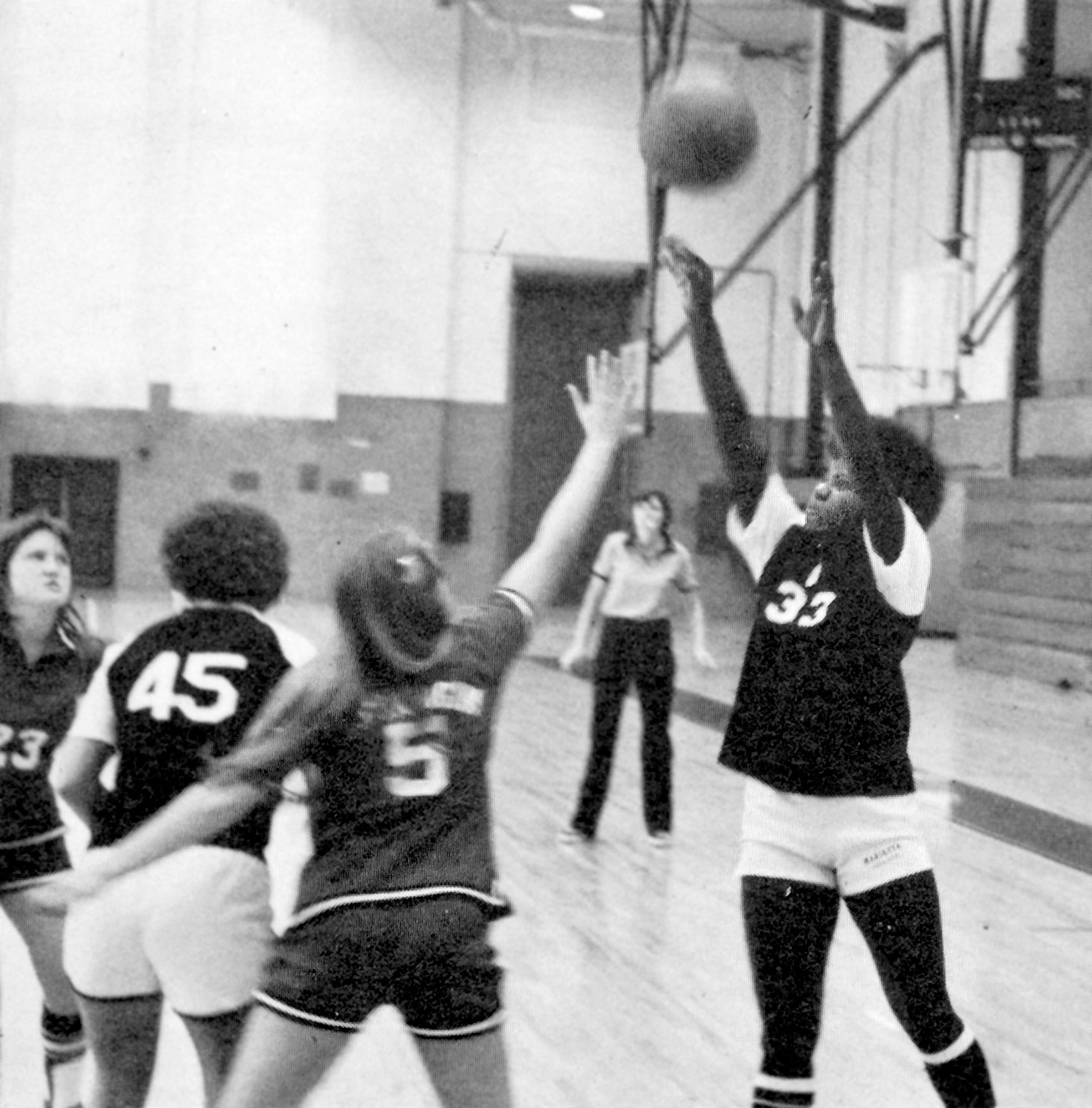
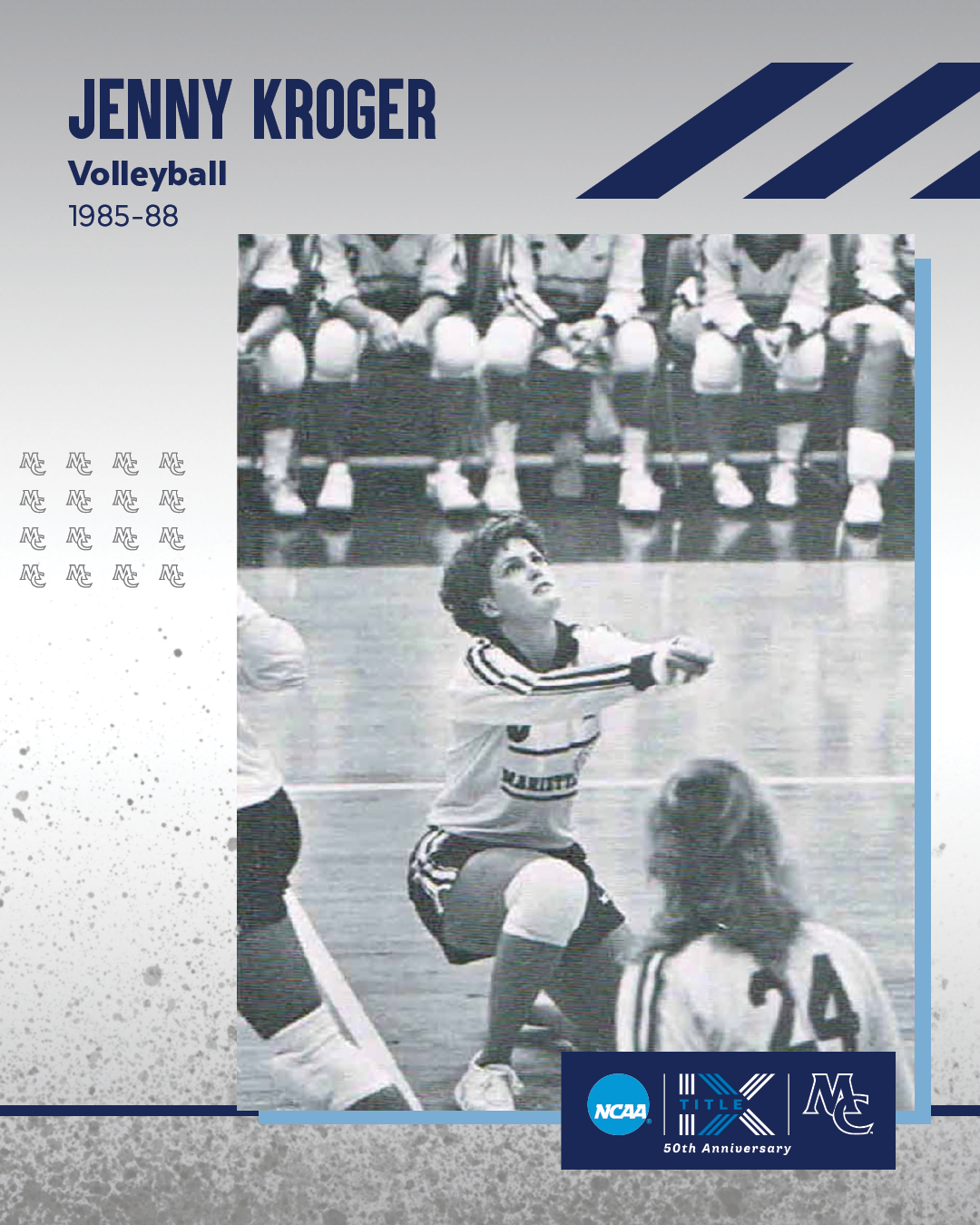
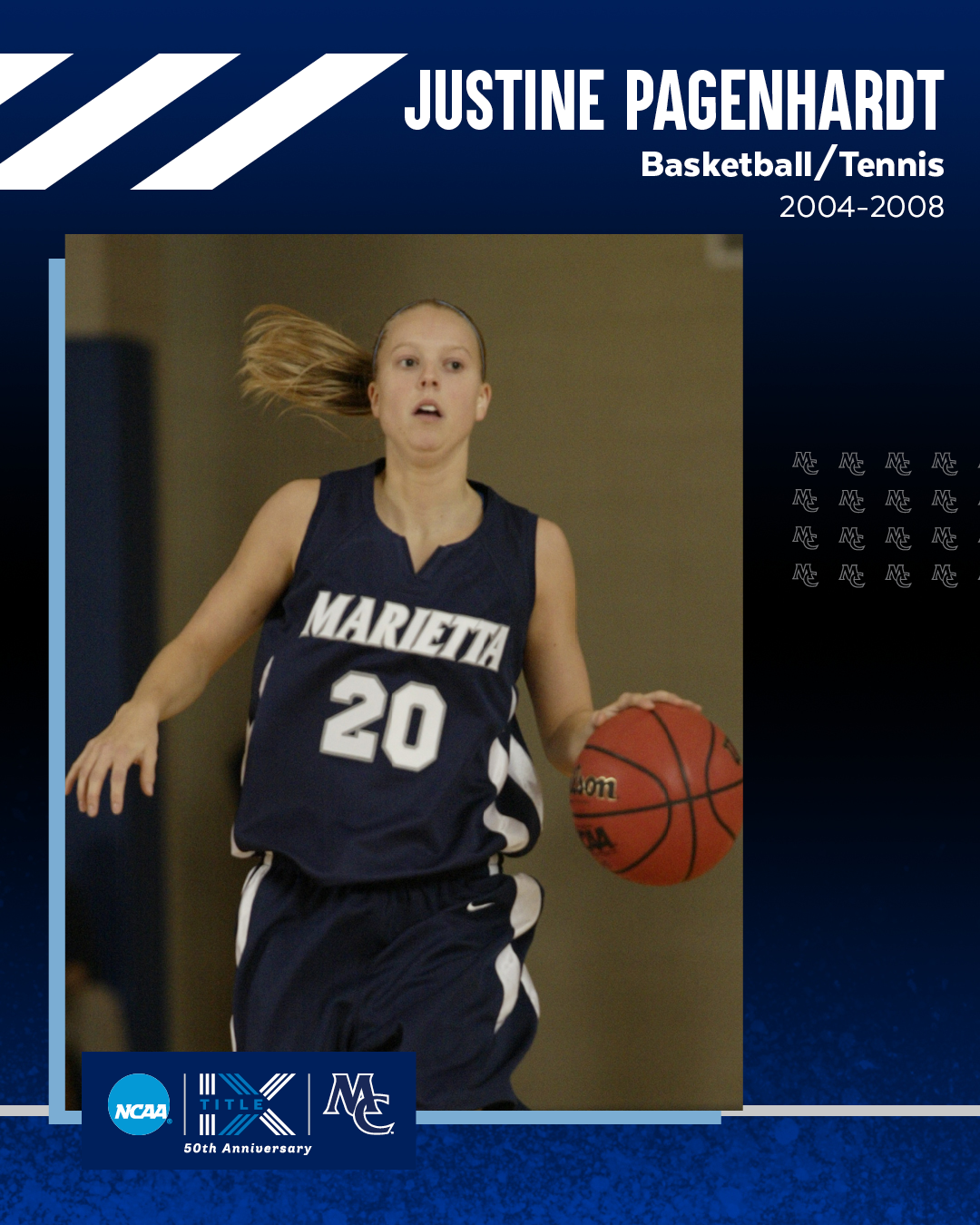
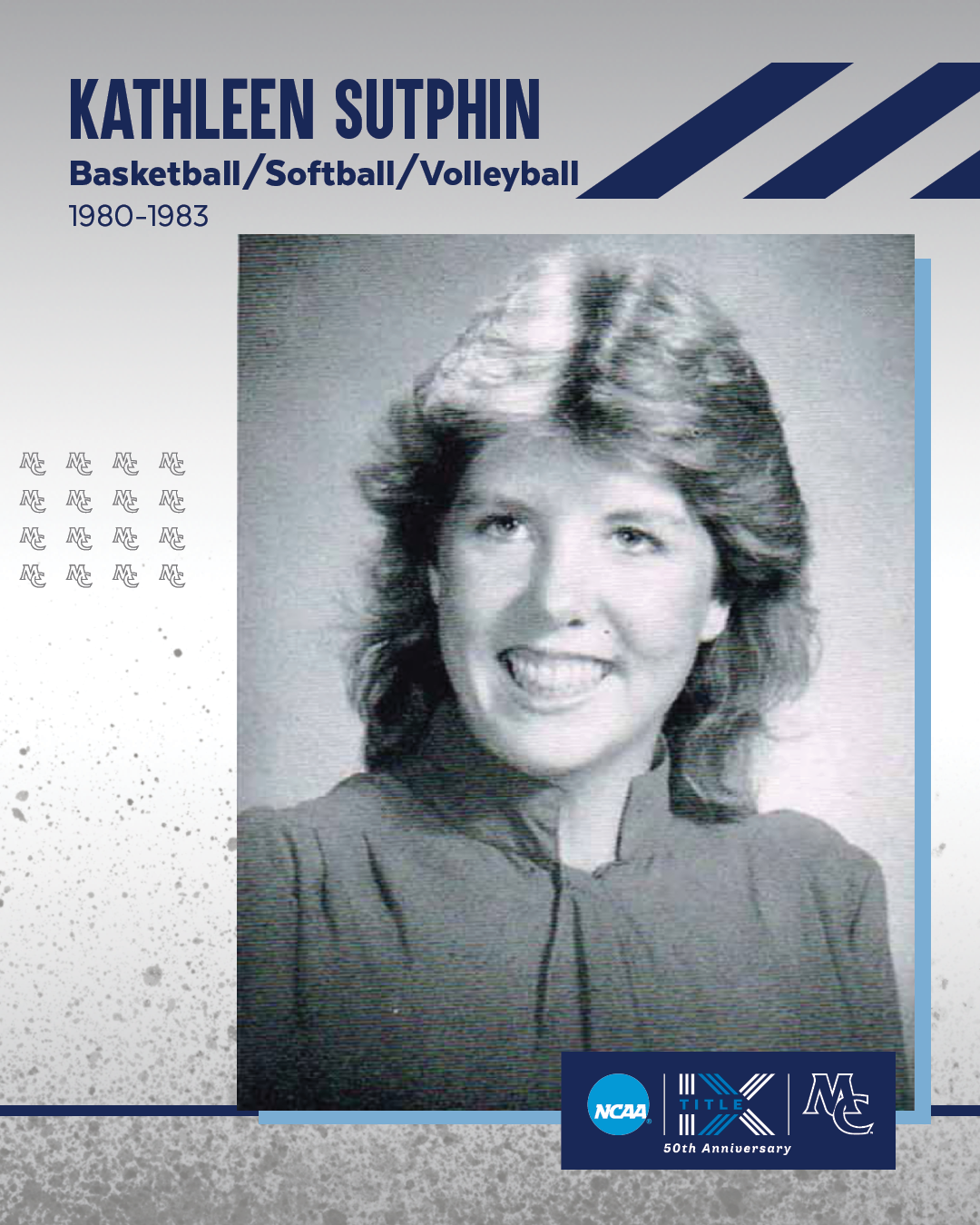
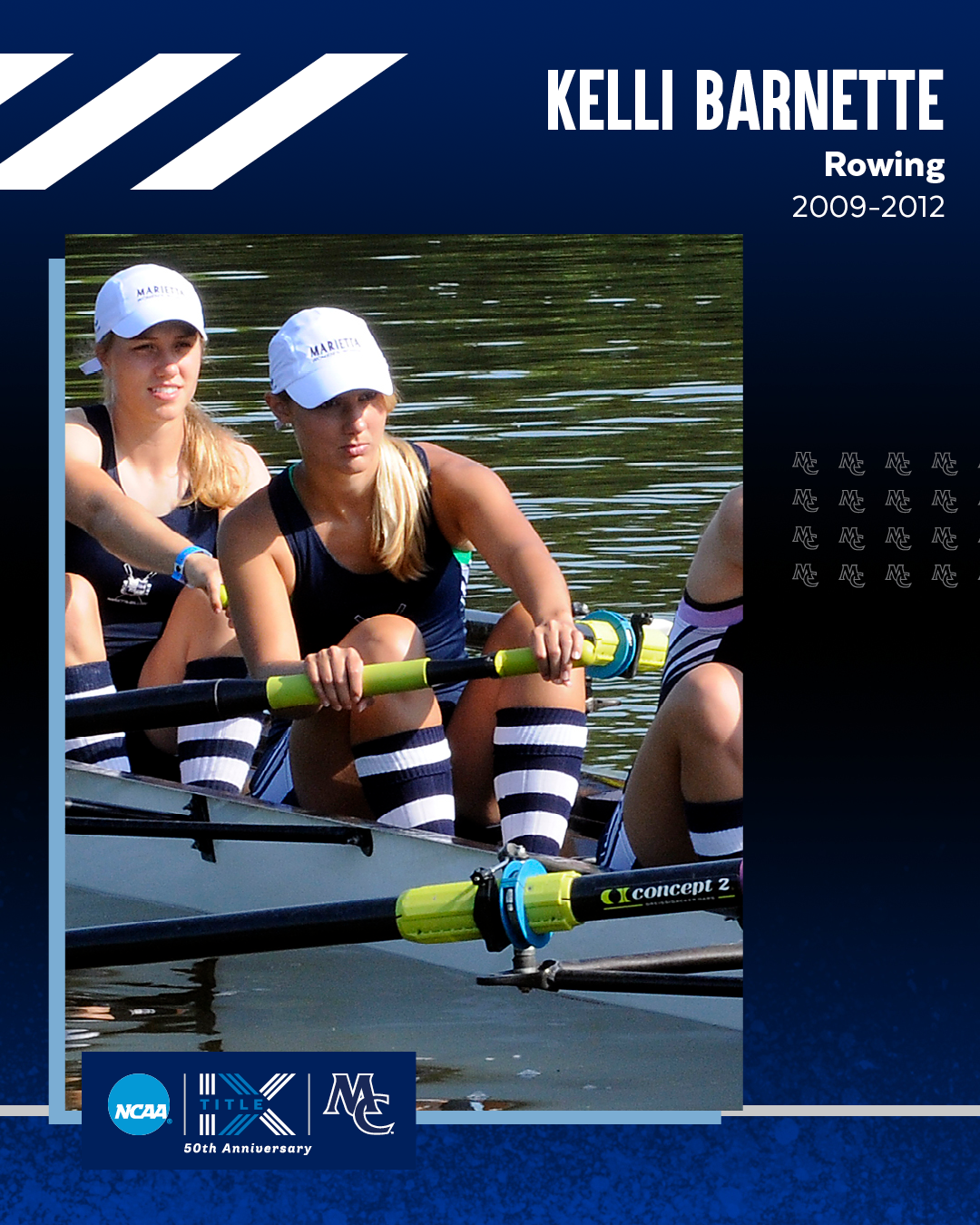
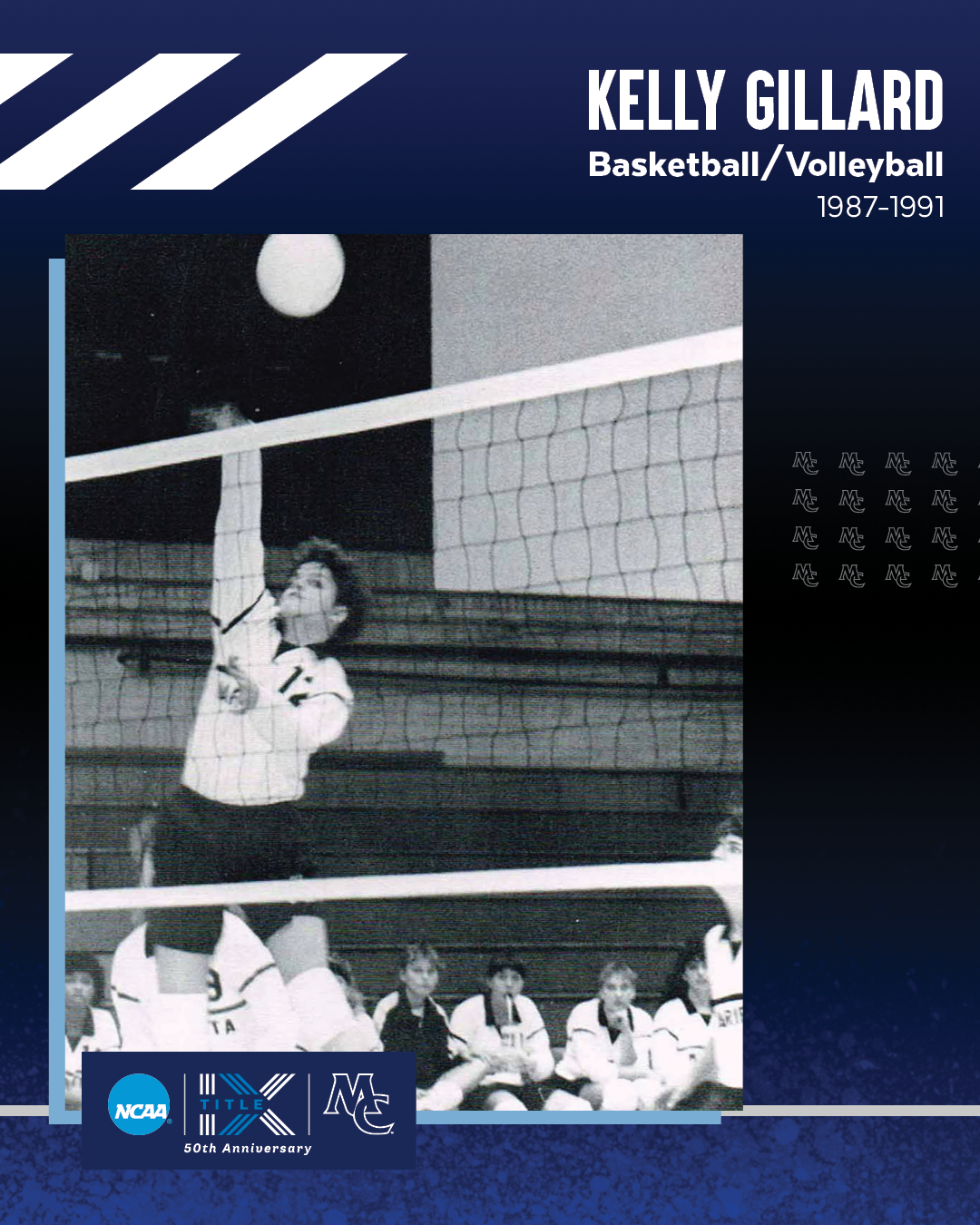
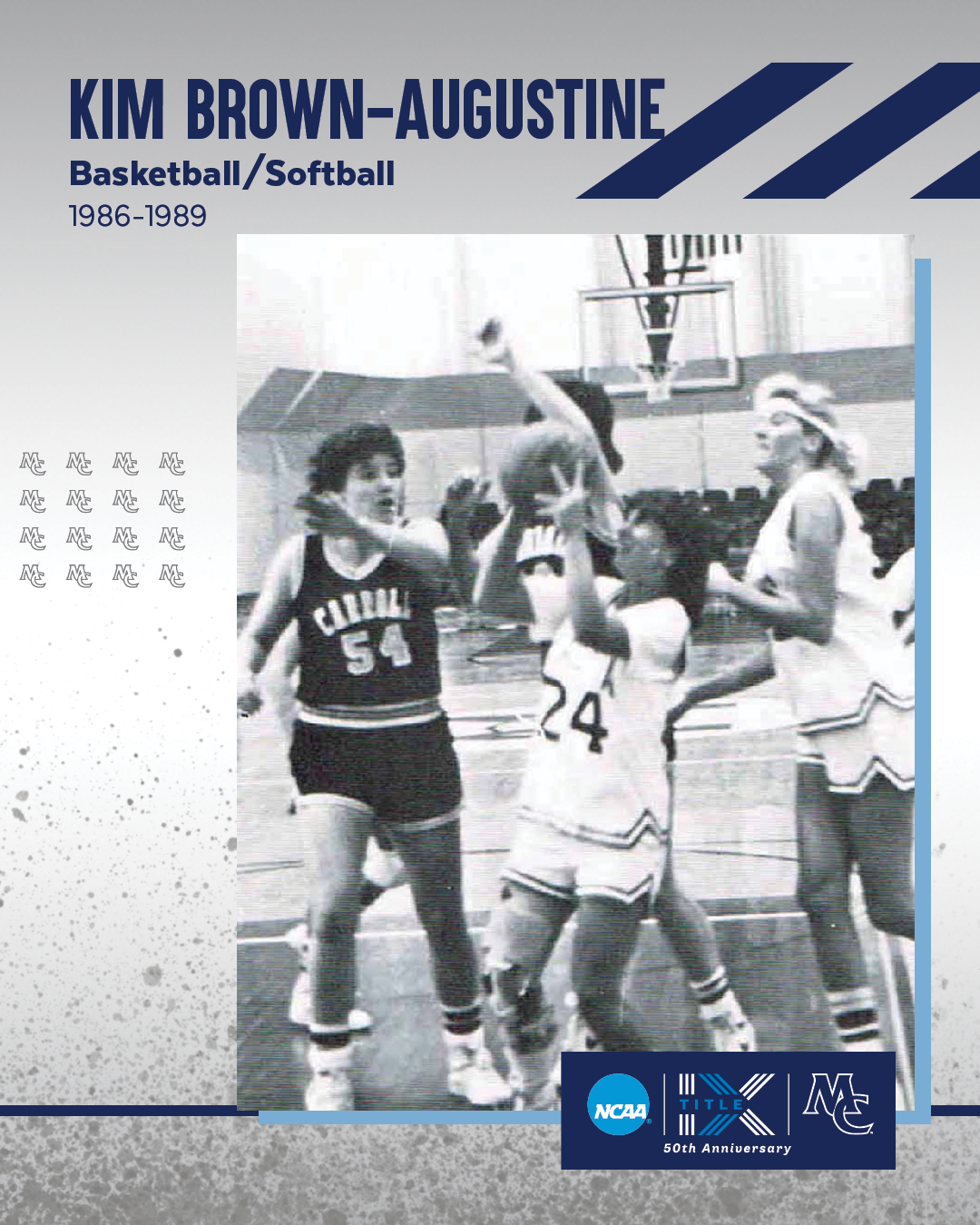
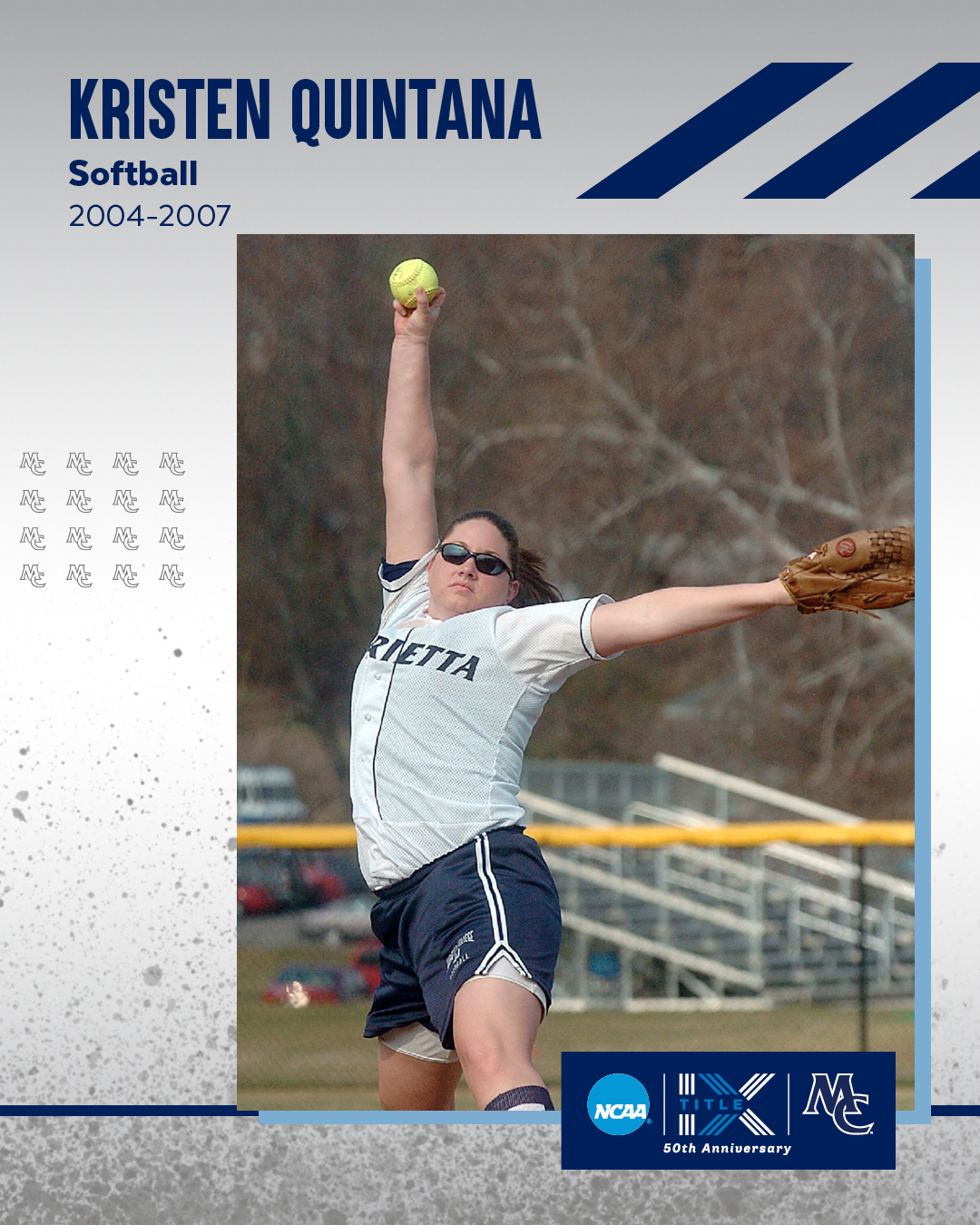

Jenny Kroger ’89, a four-year letter winner, saw action off the bench as a freshman in 1985 when the Pioneers finished runner-up in the OAC Tournament. She moved to the team’s primary setter as a junior and earned All-OAC second team honors after dishing out 772 assists. Her 8.8 assists average led the league and helped the Pioneers to once again finish second at the OAC Tournament. Kroger then capped her career with All-OAC first team and All-Region honors in 1988. She finished her career with 1,949 assists.
Jenny Kroger ’89, a four-year letter winner, saw action off the bench as a freshman in 1985 when the Pioneers finished runner-up in the OAC Tournament. She moved to the team’s primary setter as a junior and earned All-OAC second team honors after dishing out 772 assists. Her 8.8 assists average led the league and helped the Pioneers to once again finish second at the OAC Tournament. Kroger then capped her career with All-OAC first team and All-Region honors in 1988. She finished her career with 1,949 assists.

Justine Pagenhardt ’08 is the fourth all-time leading scorer in Marietta College women’s basketball history with 1,454 points. Her biggest game was a 39-point performance in an 88-76 loss to Otterbein her sophomore year. She also led the Pioneers in scoring in 51 of the 99 games she played at Marietta.
Justine Pagenhardt ’08 is the fourth all-time leading scorer in Marietta College women’s basketball history with 1,454 points. Her biggest game was a 39-point performance in an 88-76 loss to Otterbein her sophomore year. She also led the Pioneers in scoring in 51 of the 99 games she played at Marietta.

Kathleen Sutphin ’83, a three-sport standout, earned nine varsity letters, including four in softball, three in basketball, and two in volleyball. A testament to her athletic and leadership abilities, she served as the team captain in all three sports and was named the Most Valuable Player on the softball team in 1982. Sutphin, a true Pioneer in women’s athletics at Marietta College, played when softball was still a slow-pitch contest, basketball still played with a men’s ball, and there was no three-point line, and volleyball was side-out scoring. She is a member of the College’s Athletic Hall of Fame.
Kathleen Sutphin ’83, a three-sport standout, earned nine varsity letters, including four in softball, three in basketball, and two in volleyball. A testament to her athletic and leadership abilities, she served as the team captain in all three sports and was named the Most Valuable Player on the softball team in 1982. Sutphin, a true Pioneer in women’s athletics at Marietta College, played when softball was still a slow-pitch contest, basketball still played with a men’s ball, and there was no three-point line, and volleyball was side-out scoring. She is a member of the College’s Athletic Hall of Fame.

A two-time All-American, Kelli Barnette ’12 was part of Marietta’s Varsity 8+ shell that won back-to-back Dad Vail championships and competed in the NCAA championships in 2011 and 2012.
A two-time All-American, Kelli Barnette ’12 was part of Marietta’s Varsity 8+ shell that won back-to-back Dad Vail championships and competed in the NCAA championships in 2011 and 2012.

Remembered more as a top volleyball athlete, Kelly Gillard ’91 finished with 1,178 kills — the first player in school history to reach 1,000. A two-time first-team All-OAC selection, she was also an Academic All-American her final two seasons. She is a member of the College’s Athletic Hall of Fame.
Remembered more as a top volleyball athlete, Kelly Gillard ’91 finished with 1,178 kills — the first player in school history to reach 1,000. A two-time first-team All-OAC selection, she was also an Academic All-American her final two seasons. She is a member of the College’s Athletic Hall of Fame.

A standout in basketball and softball, Kim Brown-Augustine ’89 was a two-time first-team All-OAC selection in both sports. She ranks third all-time in scoring for women’s basketball with 1,568 points and is tops with 15 career triples in softball. She is a member of the College’s Athletic Hall of Fame.
A standout in basketball and softball, Kim Brown-Augustine ’89 was a two-time first-team All-OAC selection in both sports. She ranks third all-time in scoring for women’s basketball with 1,568 points and is tops with 15 career triples in softball. She is a member of the College’s Athletic Hall of Fame.

A four-year letter winner, Kristen Quintana ’07 is one of the softball program’s most-decorated players. She holds nearly every pitching record in school history, including most wins (62), complete games (76), strikeouts (663), and no-hitters (four). She is a member of the College’s Athletic Hall of Fame.
A four-year letter winner, Kristen Quintana ’07 is one of the softball program’s most-decorated players. She holds nearly every pitching record in school history, including most wins (62), complete games (76), strikeouts (663), and no-hitters (four). She is a member of the College’s Athletic Hall of Fame.
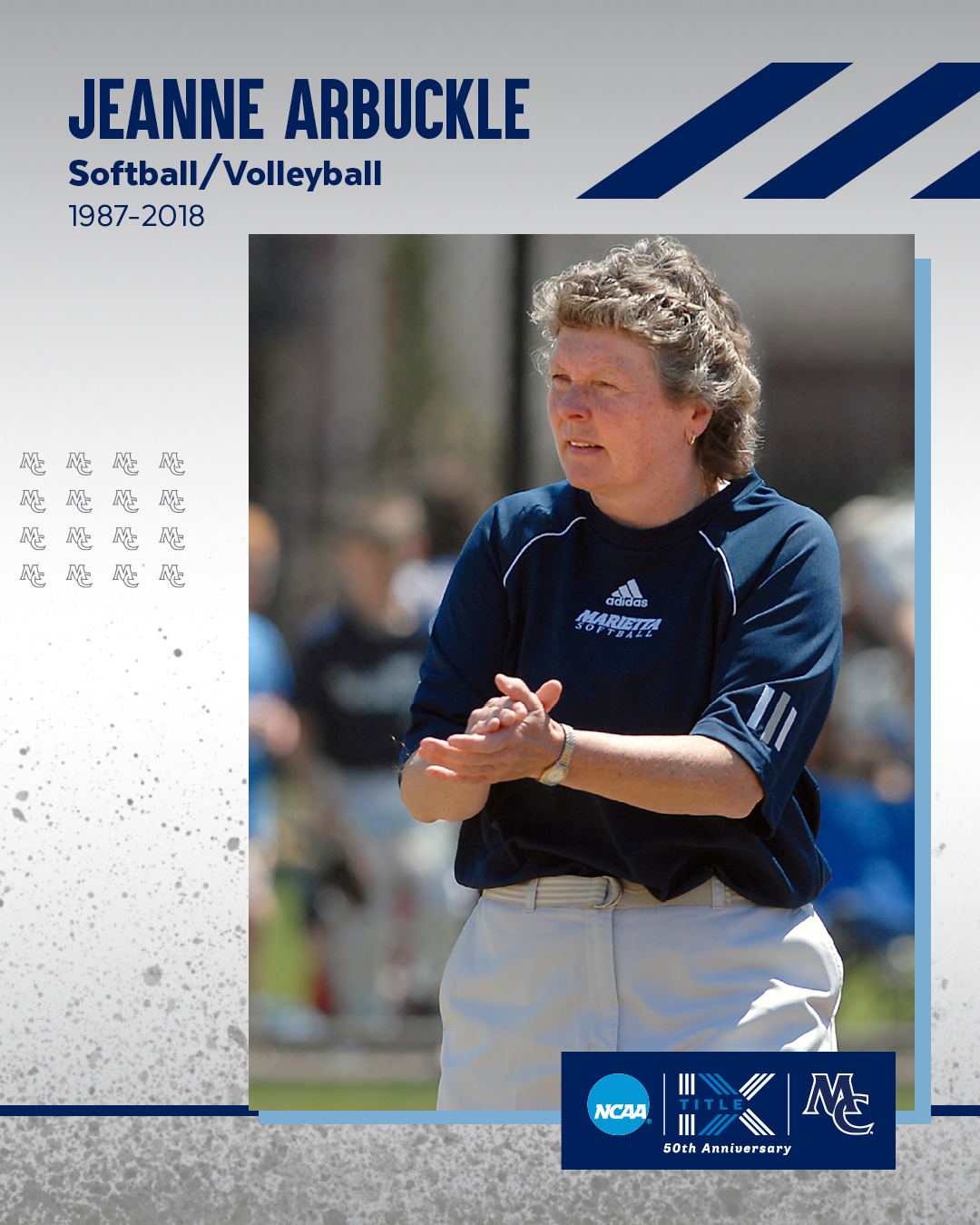
Coach Jeanne Arbuckle compiled a career record of 571-529-3 during her 31 years as the softball coach. Arbuckle led the Pioneers to the 1996 OAC Championship and a trip to the NCAA Tournament, the first time a women’s team reached the NCAA Tournament in Marietta College history. The 2007 season was a career-best as the Pioneers went 34-12, setting the program record for wins and making their second appearance in the NCAA Tournament. Arbuckle was named the OAC Coach of the Year in 1995 and 1996 and was the OAC Softball Coaching Staff of the Year in 2006. She was also named the NCAA Region Coach of the Year following the 2006 season. She is a member of the College’s Athletic Hall of Fame.
Coach Jeanne Arbuckle compiled a career record of 571-529-3 during her 31 years as the softball coach. Arbuckle led the Pioneers to the 1996 OAC Championship and a trip to the NCAA Tournament, the first time a women’s team reached the NCAA Tournament in Marietta College history. The 2007 season was a career-best as the Pioneers went 34-12, setting the program record for wins and making their second appearance in the NCAA Tournament. Arbuckle was named the OAC Coach of the Year in 1995 and 1996 and was the OAC Softball Coaching Staff of the Year in 2006. She was also named the NCAA Region Coach of the Year following the 2006 season. She is a member of the College’s Athletic Hall of Fame.
Over the past 50 years, Marietta has only won a few conference championships — softball, soccer, and basketball. One of the greatest individual performances came in 2018 when golfer Jackie Cunningham earned medalist honors at the OAC Championship with a three-day score of 220 — 22 strokes better than the second-place finisher.
Marietta softball was the first women’s program to advance to the NCAA Tournament in 1996 when the Pioneers finished 25-9 and won the OAC Tournament crown. Coach Jeanne Arbuckle helped lead the Pioneers back to the NCAAs in 2007 as the squad went 34-12 behind one of the most potent lineups in program history.
“Those were both amazing teams and are at the top of any discussion about the program’s best,” Arbuckle says. “However, if you ask the players from either team, they will tell you they were the best.”
More recently, basketball has been the top women’s sport on campus. Coach Kole Vivian took over the program in 2016, won the conference championship in the 2017-18 season, and advanced to the NCAA Tournament. Last season, the Pioneers finished third in the OAC, but their résumé was so impressive that Marietta received an at-large bid and won the program’s first NCAA Tournament game — 65-50 over Wittenberg. Vivian entered this season with a 100-51 overall record.
Borich, though, remains the program’s most outstanding player. She still leads the OAC in career points with 2,311 points and was the first woman to earn first team All-American honors.
“I just loved to play basketball and I loved to compete,” Borich says. “I knew we had something special when I saw the baseball players and Coach (Don) Schaly coming to our games. Here is this baseball coach who has won national championships and he is taking the time to watch our games. That’s when I really appreciated how good we were. He likes winners and he wanted to see what we could do.”
Lazorik says Brdicka was the first player who helped draw fans to games, but Borich remains the best to ever put on the Marietta uniform.
“No. 1, Cathy was a local product. She had name recognition, and she’s really good,” Lazorik says. “Then people started coming to the games, and now we are winning games. Cathy took us over that next line.”
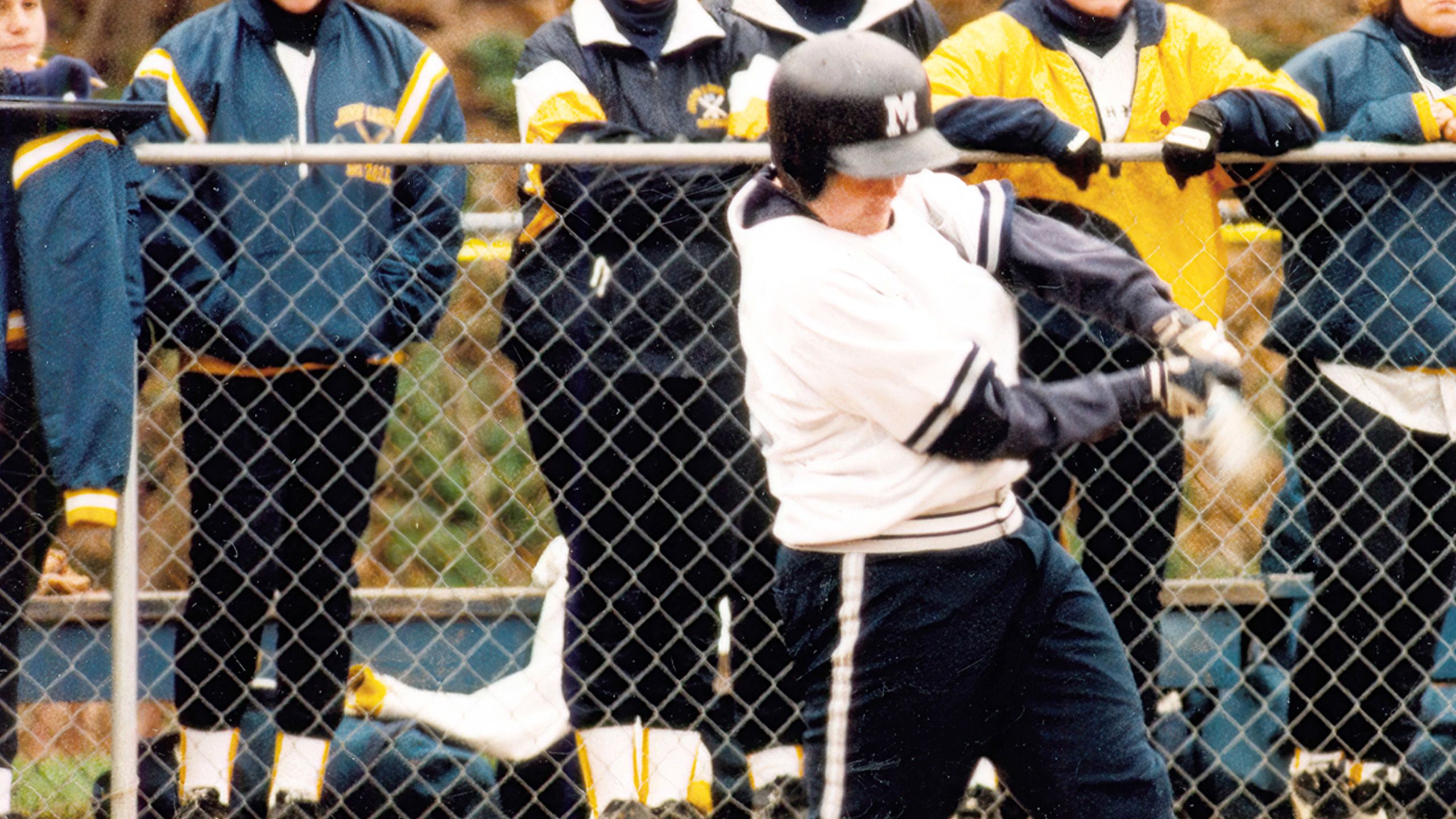
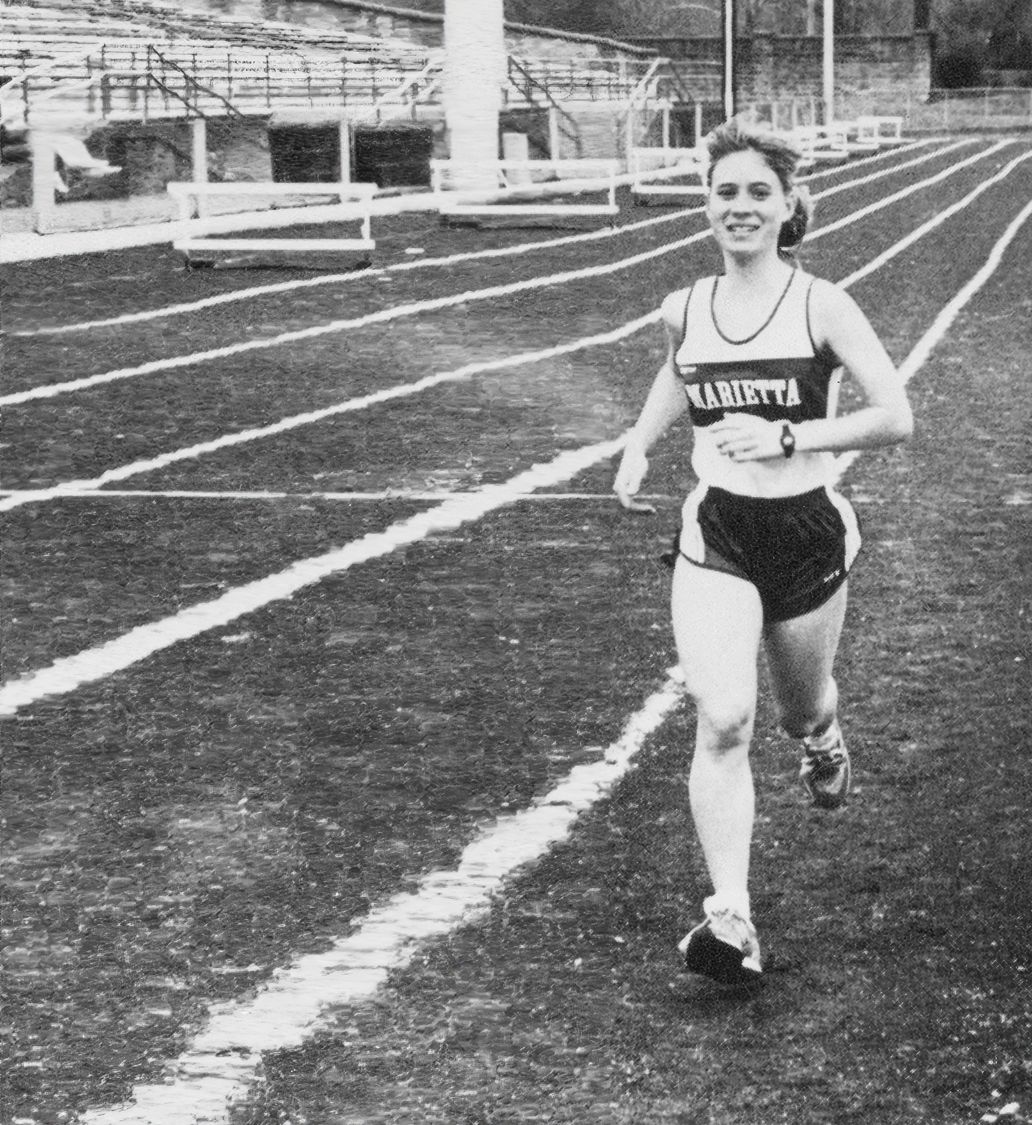
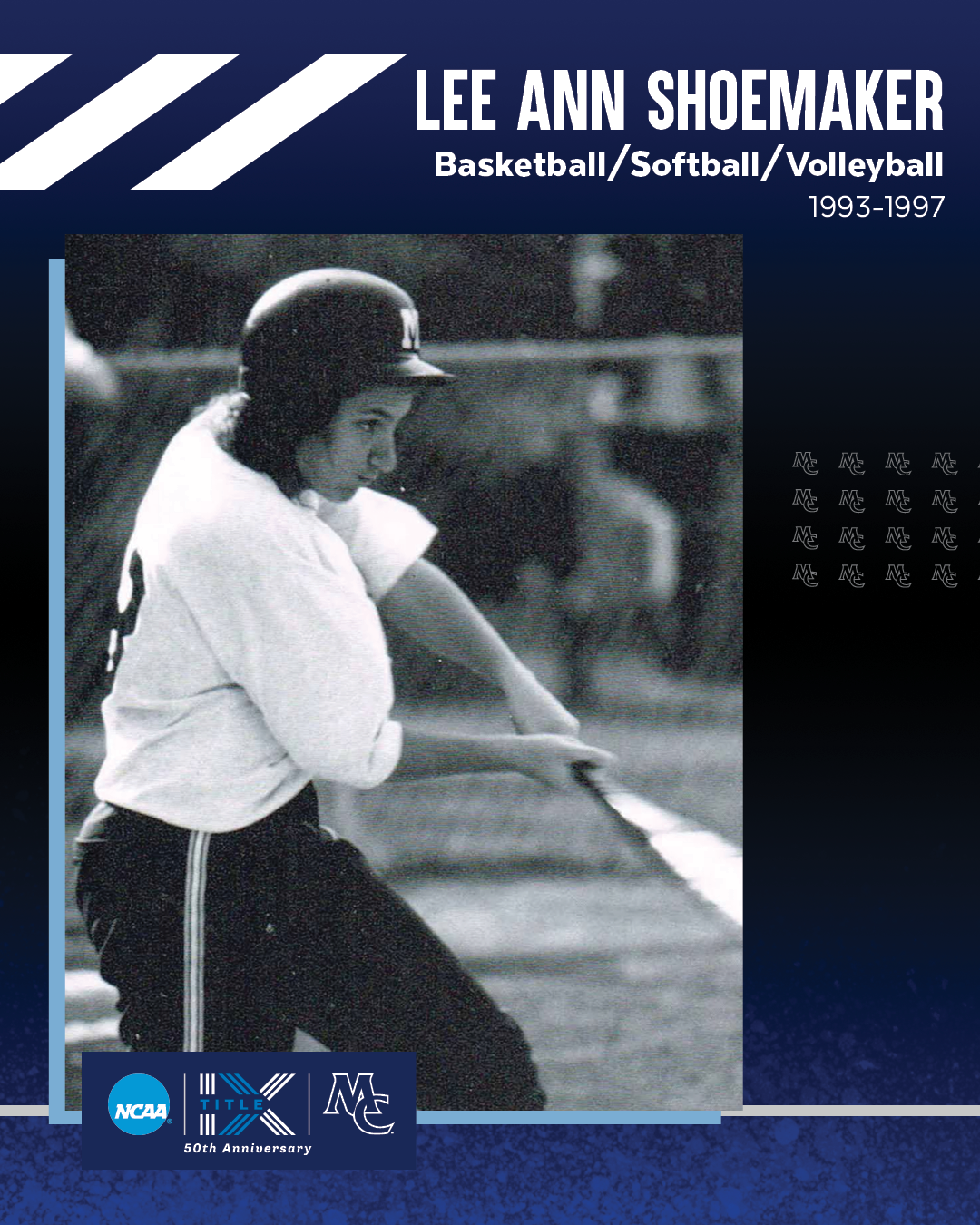
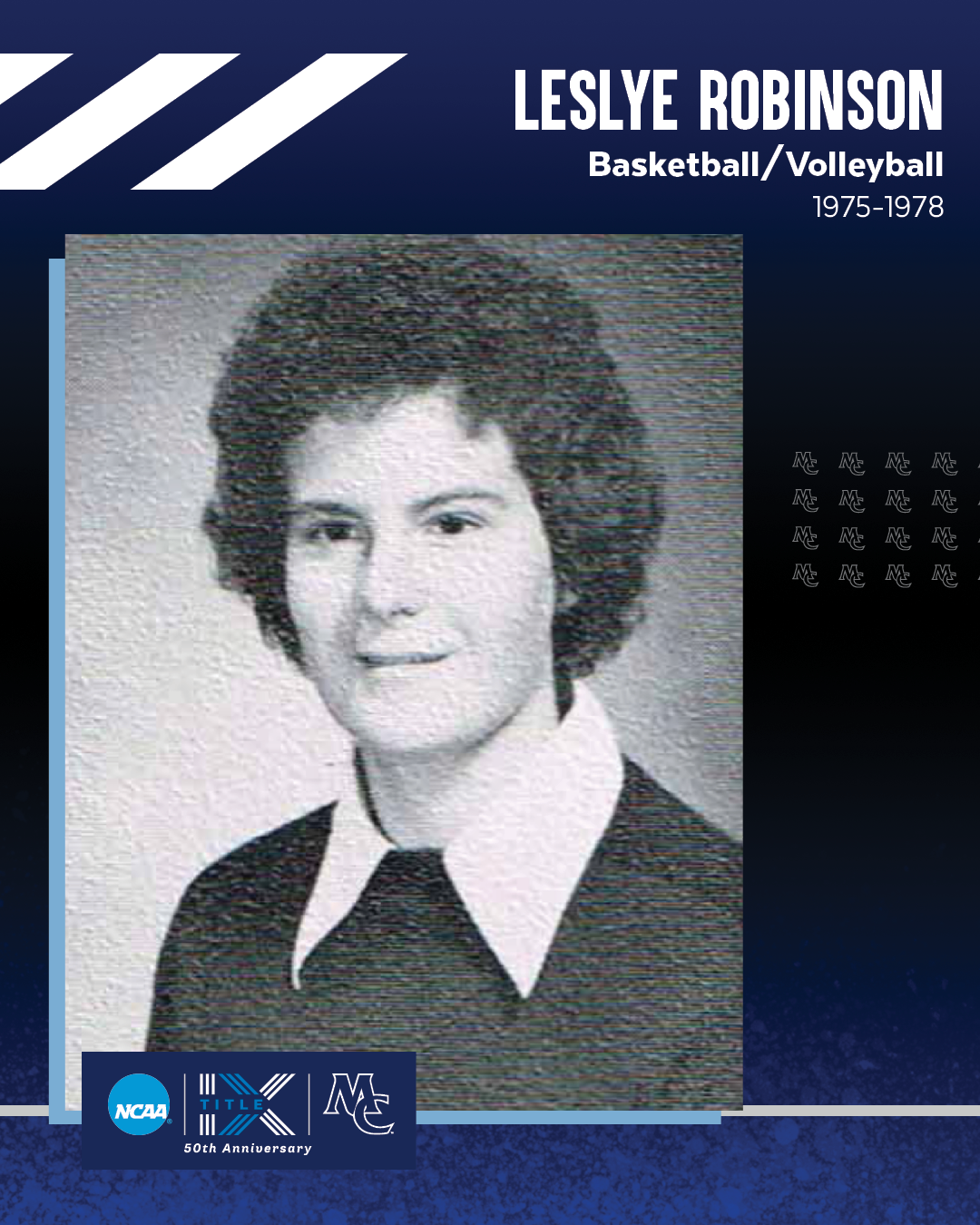
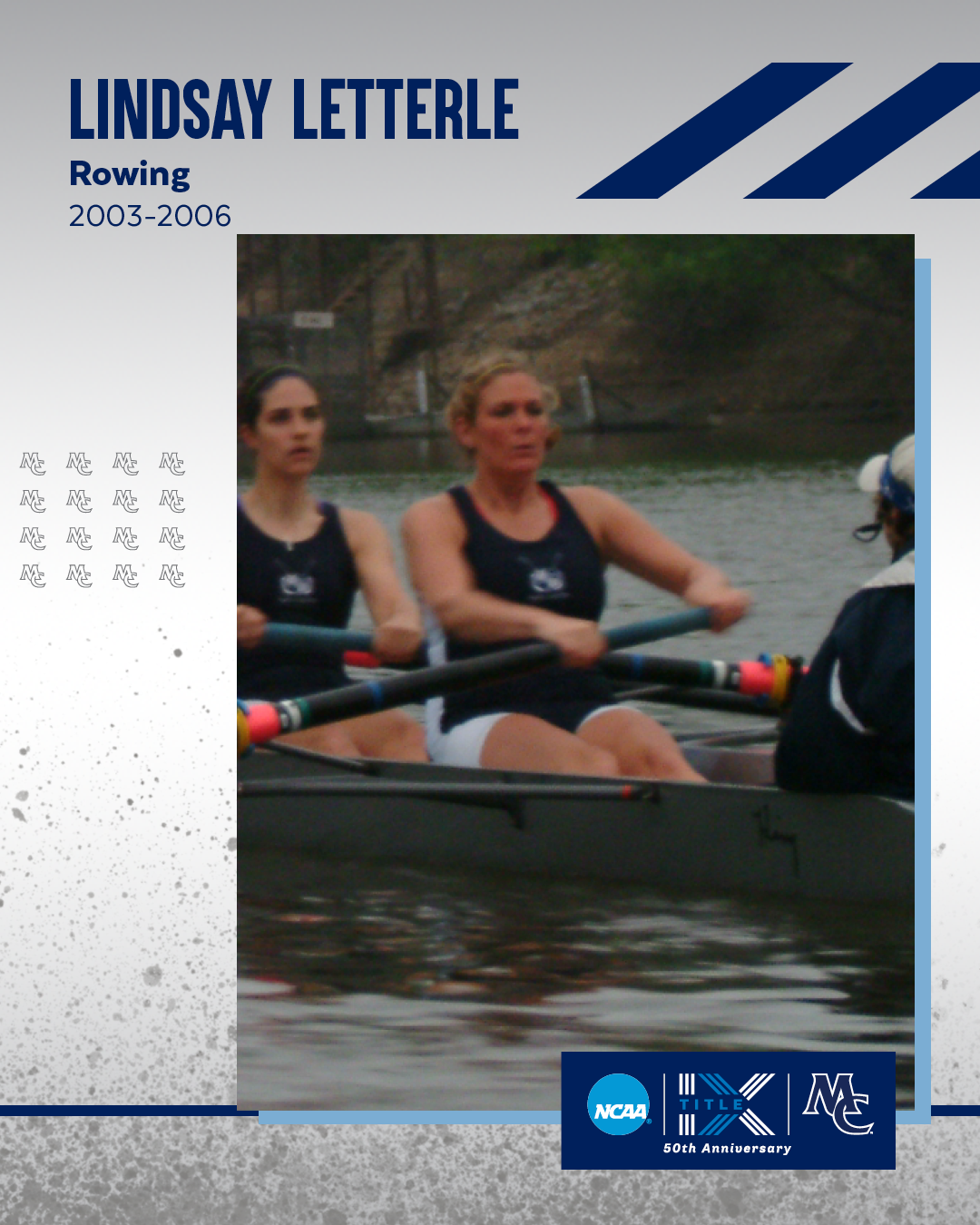
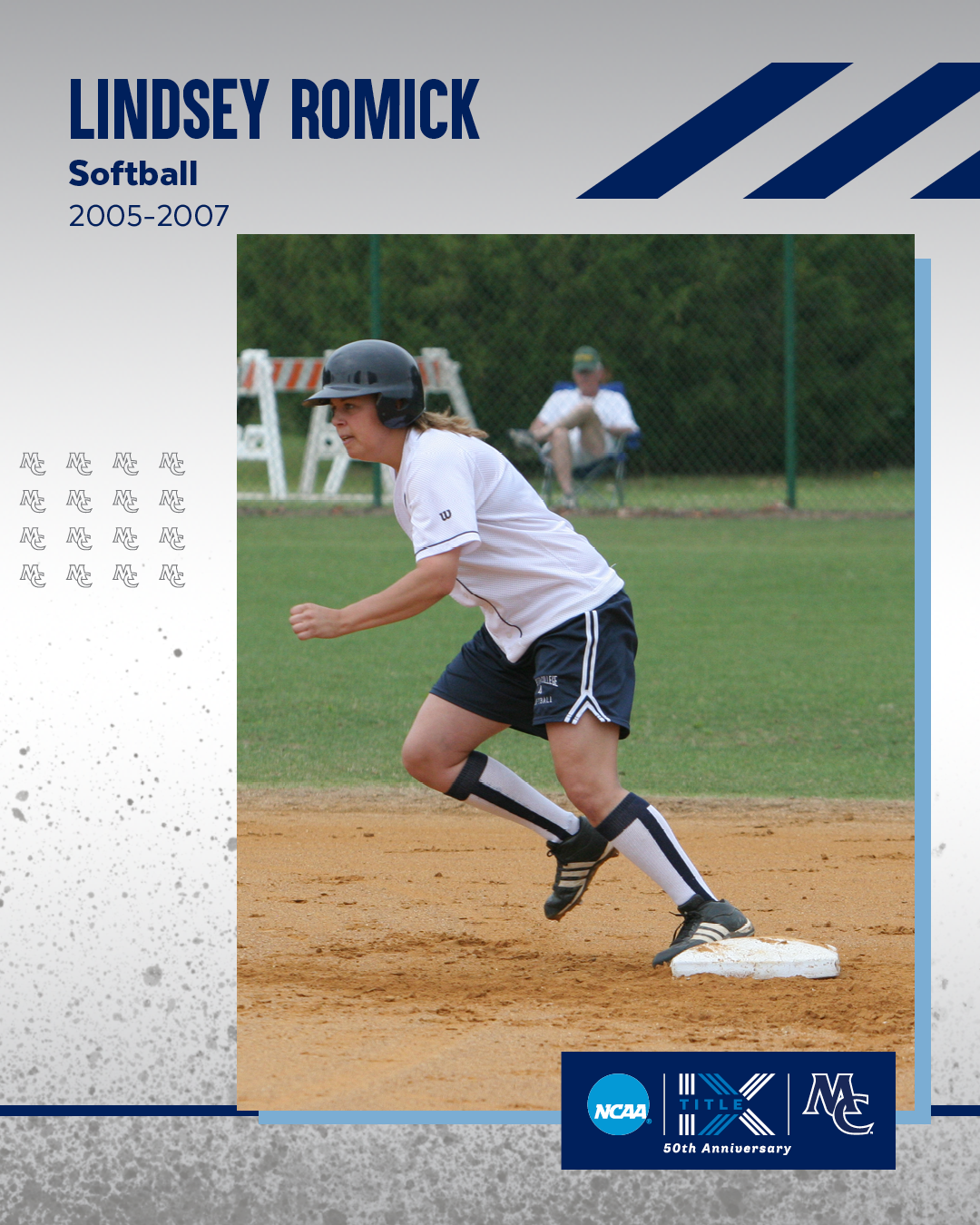
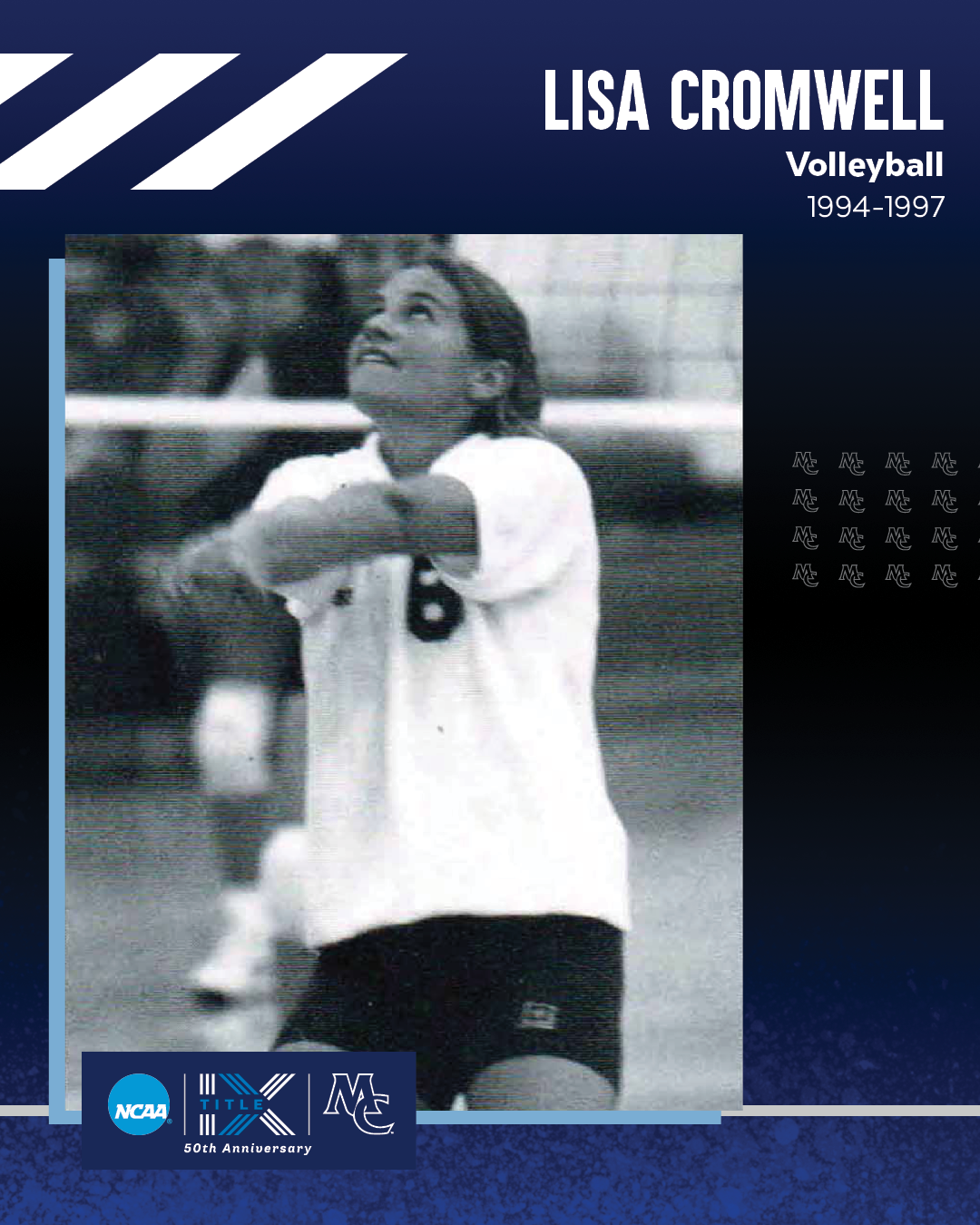
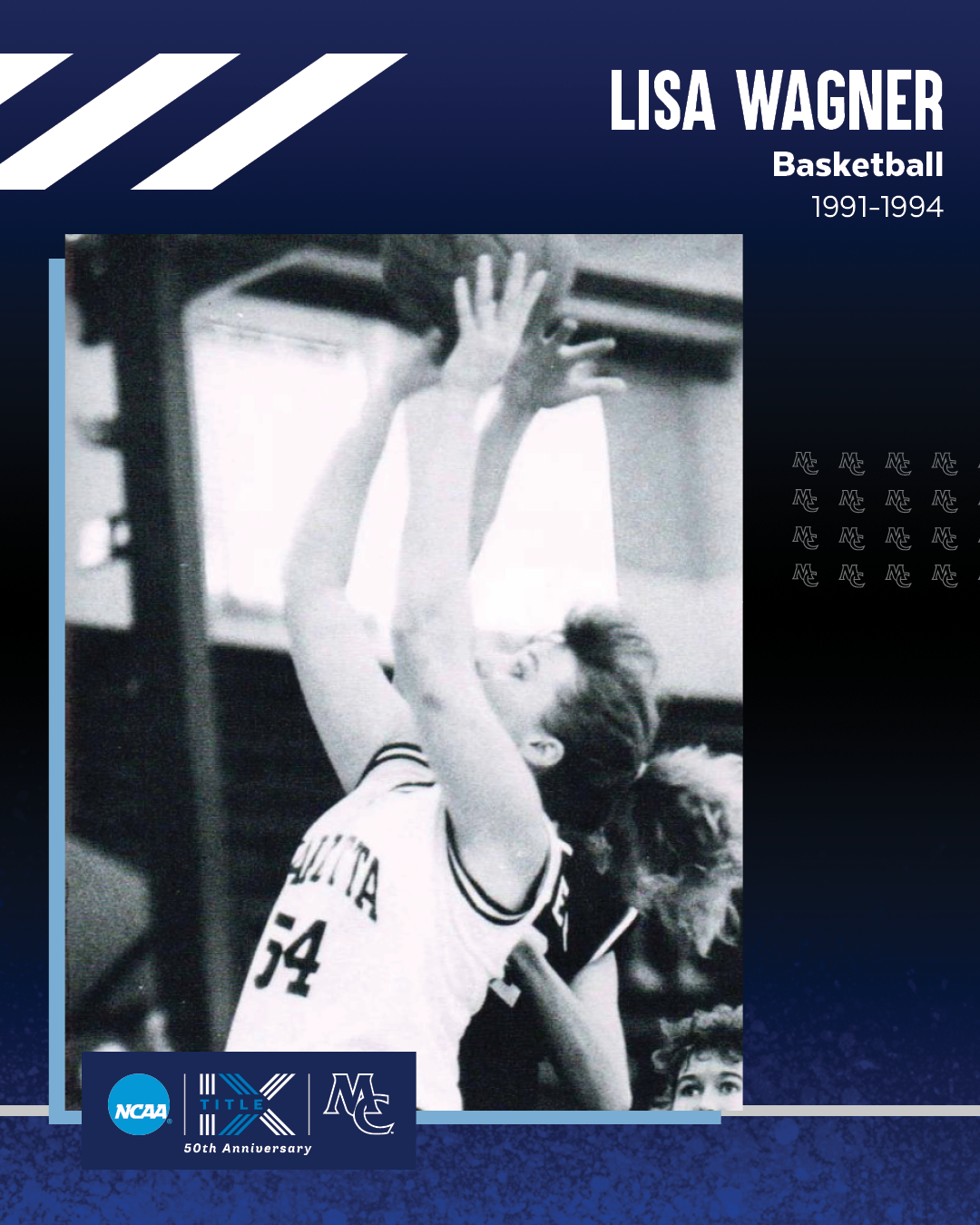
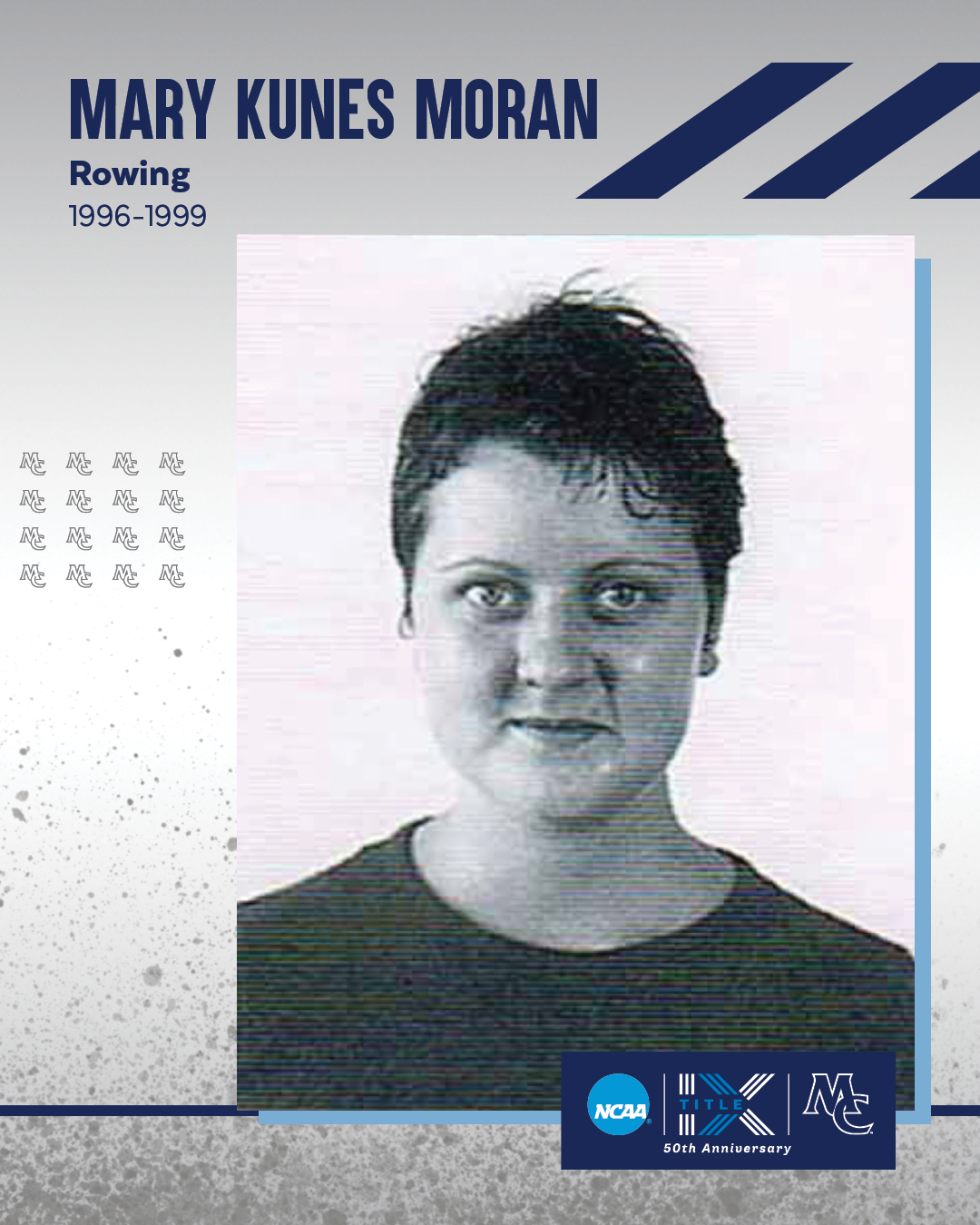
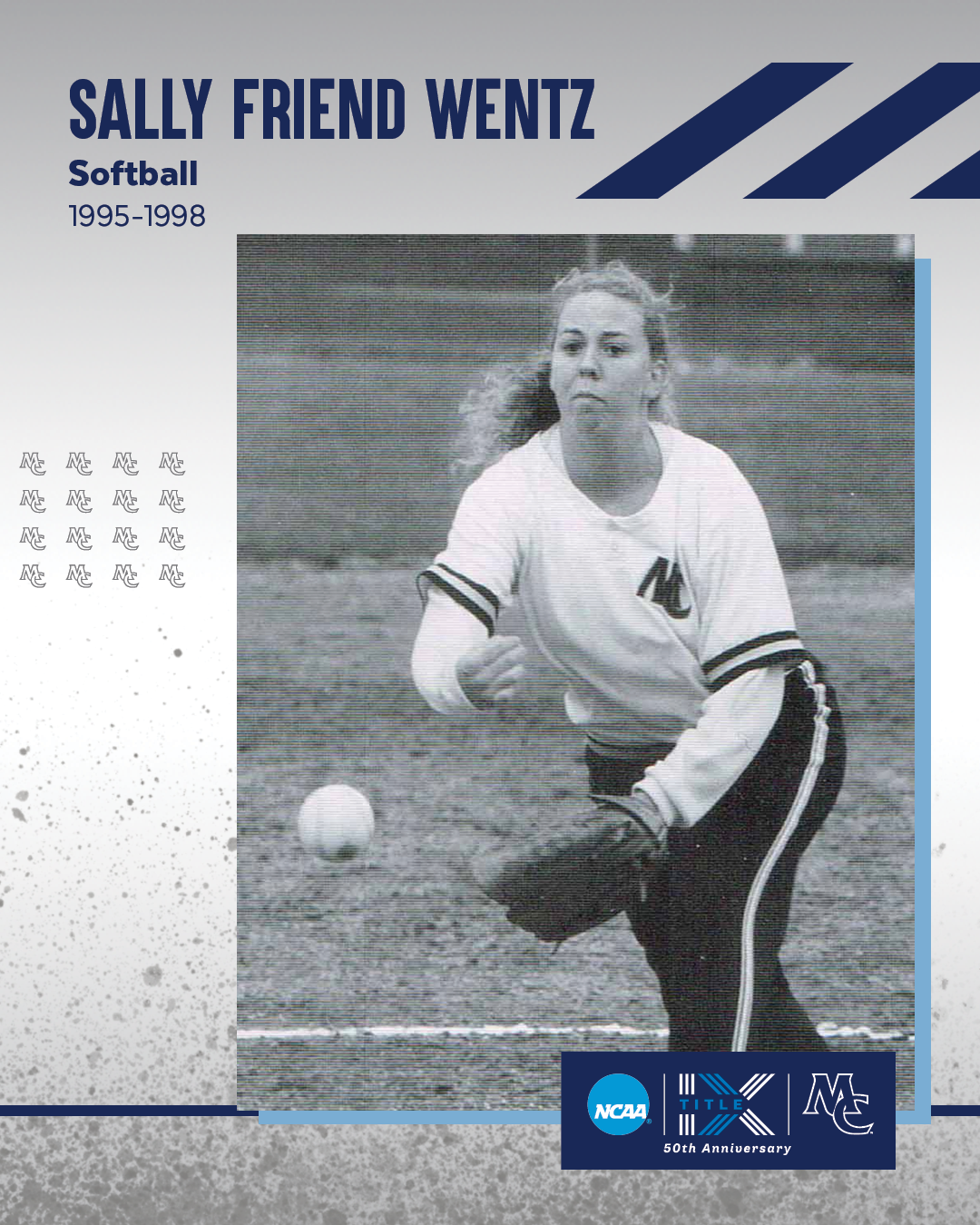

Lee Ann Shoemaker ’97, who earned nine varsity letters and earned All-OAC honors three straight years in softball, helped lead the Pioneers to their first league title and first NCAA tournament. She had 146 career hits and a .374 average. A two-time All-OAC volleyball player, she holds the school record for career kills (1,252). She is a member of the College’s Athletic Hall of Fame.
Lee Ann Shoemaker ’97, who earned nine varsity letters and earned All-OAC honors three straight years in softball, helped lead the Pioneers to their first league title and first NCAA tournament. She had 146 career hits and a .374 average. A two-time All-OAC volleyball player, she holds the school record for career kills (1,252). She is a member of the College’s Athletic Hall of Fame.

Leslye Robinson ’78 helped garner attention for women’s athletics at the College during a time when female sports weren't truly appreciated. Robinson brought respect to women’s basketball because of her natural athletic ability. She earned four letters in basketball and one in volleyball. Robinson was a co-captain for the Pioneer squad for three years. She had 895 points in 53 career games. She is a member of the College’s Athletic Hall of Fame.
Leslye Robinson ’78 helped garner attention for women’s athletics at the College during a time when female sports weren't truly appreciated. Robinson brought respect to women’s basketball because of her natural athletic ability. She earned four letters in basketball and one in volleyball. Robinson was a co-captain for the Pioneer squad for three years. She had 895 points in 53 career games. She is a member of the College’s Athletic Hall of Fame.

A first-team All-American in 2006, Lindsay Letterle ’06 was captain of the women’s rowing team. She earned four varsity letters and rowed stroke when Marietta won the 2004 Dad Vail gold medal in the Division II/III race. She is a member of the College’s Athletic Hall of Fame.
A first-team All-American in 2006, Lindsay Letterle ’06 was captain of the women’s rowing team. She earned four varsity letters and rowed stroke when Marietta won the 2004 Dad Vail gold medal in the Division II/III race. She is a member of the College’s Athletic Hall of Fame.

Lindsey Romick ’07 transferred to Marietta before her sophomore year and became a two-time All-Region selection. She led the 2005 team with 52 hits and 14 doubles and belted six home runs her senior year. She is a member of the College’s Athletic Hall of Fame.
Lindsey Romick ’07 transferred to Marietta before her sophomore year and became a two-time All-Region selection. She led the 2005 team with 52 hits and 14 doubles and belted six home runs her senior year. She is a member of the College’s Athletic Hall of Fame.

Lisa Cromwell ’98 was a four-year varsity letter winner and the starting setter in each season. She served as the team captain for three seasons and was named All-Ohio Athletic Conference as a junior. Cromwell holds the school record for assists in a season (1,288 in 1996) and assists per game in a season (10.92 in 1996). A two-time Academic All-OAC selection, Cromwell is a member of the College’s Athletic Hall of Fame.
Lisa Cromwell ’98 was a four-year varsity letter winner and the starting setter in each season. She served as the team captain for three seasons and was named All-Ohio Athletic Conference as a junior. Cromwell holds the school record for assists in a season (1,288 in 1996) and assists per game in a season (10.92 in 1996). A two-time Academic All-OAC selection, Cromwell is a member of the College’s Athletic Hall of Fame.

Lisa Wagner ’94 filled a void in the post for the Pioneers as she earned All-OAC recognition all four years she played for the Pioneers. She is the second-leading scorer at the College with 1,818 points and is still the career leader in rebounds with 938. She is a member of the College’s Athletic Hall of Fame.
Lisa Wagner ’94 filled a void in the post for the Pioneers as she earned All-OAC recognition all four years she played for the Pioneers. She is the second-leading scorer at the College with 1,818 points and is still the career leader in rebounds with 938. She is a member of the College’s Athletic Hall of Fame.

Mary Kunes Moran ’99 was the first women’s rower to earn All-America honors. She was a co-captain her senior year as the Pioneers won the Varsity 8 races at the Atlantic Collegiate League Sprints and Mid-America Collegiate Rowing Association Championship. She also rowed on the first women’s rowing team to reach the NCAA championships. She is a member of the College’s Athletic Hall of Fame.
Mary Kunes Moran ’99 was the first women’s rower to earn All-America honors. She was a co-captain her senior year as the Pioneers won the Varsity 8 races at the Atlantic Collegiate League Sprints and Mid-America Collegiate Rowing Association Championship. She also rowed on the first women’s rowing team to reach the NCAA championships. She is a member of the College’s Athletic Hall of Fame.

Sally Friend Wentz ’98 was the most-dominant pitcher during the 1996 season, as she went 17-4 with 69 strikeouts and a 0.91 ERA. She led the Pioneers to their first OAC championship and NCAA Division III regional appearance. She is a member of the College’s Athletic Hall of Fame.
Sally Friend Wentz ’98 was the most-dominant pitcher during the 1996 season, as she went 17-4 with 69 strikeouts and a 0.91 ERA. She led the Pioneers to their first OAC championship and NCAA Division III regional appearance. She is a member of the College’s Athletic Hall of Fame.
However, rowing is easily the most accomplished women’s program at Marietta. The Pioneers have won five Dad Vail gold medals in the Varsity Eight competition and have qualified for the NCAA Tournament three times (1999, 2011, and 2012).
If not for a pioneer like Debbie Grove Knapp ’76, women’s rowing may not have become a varsity sport until much later. When Knapp arrived in Fall 1972, the only women’s sport was field hockey. Watching the men’s rowing program from the Muskingum River shore, Knapp learned to appreciate the beauty of the sport. She was recruited by some of the men on the Varsity Lightweight 8 and joined them as a coxswain — becoming the first female to earn a varsity letter in a male sport.
“I wouldn’t have had two winning seasons in the Varsity Lightweight boat, without tremendous effort by the oarsmen in my shell,” Knapp says. “There was a mutual trust and respect — a feeling that has stayed with me to this day. Fifty years later, I still have my MC varsity letter jacket — still many sizes too big, but it hangs proudly in my closet.”
She eventually mustered the courage and asked legendary coach Ralph Lindamood about starting a women’s rowing team.
“He was receptive to the idea, but stressed the responsibility of using such expensive equipment,” Knapp says. “He also said it was not his decision alone, that I would need to convince Betty Bennett, head of women’s athletics since that was where the funding would need to come from.”
Eventually, Bennett agreed, but the women would have to start as a club sport in 1974.
“The first women’s crew shell left the docks in the fall of 1974, with a group of very excited women and a photographer from Marietta,” Knapp says. “I remember that day well. There I was, sitting in the three-seat rowing starboard. It was a very good day for women’s sports.”
However, Kay Draisin '69 recalls when Lindamood provided her and some other women with some old men's equipment and a senior oarsman as a coach. Draisin says before they were allowed to participate, she had to get permission from all the deans.
"We only rowed a few times before the end of the school year, and warming up was jogging to the boathouse from campus," she says.
Interest in the program grew quickly, and it was elevated to varsity status in 1977. That led to even more success, including Mary Kunes Moran ’99, who was the first women’s rower to earn All-American honors and rowed on the 1999 Varsity 8 that competed in the NCAAs in California.
“I don’t think any of us realized that we would reach (the NCAA Championships),” Moran says. “We just worked hard, and we kept winning races, and eventually, we realized we could really do this. We didn’t fully take it in and understand how huge it was for us, the College or women’s rowing. But I can tell you now, that we are all very proud of the accomplishment.”
Out of 19 teams, Marietta was one of only three Division III programs competing. Kunes says the Pioneers were intimidated by the larger Division I rowers.
“It was just pure excitement that we were selected to go, and we were coming off an incredible season,” she says. “We were focused, and then we got on the flight for Sacramento, and we kept asking everyone, ‘Can you believe this?’ Then we got to Lake Natoma, and the D1 athletes were giants, and things got real.”
But it was that type of competition that Khoury dreamed of back in the late 1960s, and she is excited to see the possibilities that today’s women are afforded.
“It really is amazing,” she says. “We have professional sports for women. I wish I could be a teenager again and have the opportunity to play so many sports. But I would still be different because I’d want to play football.”
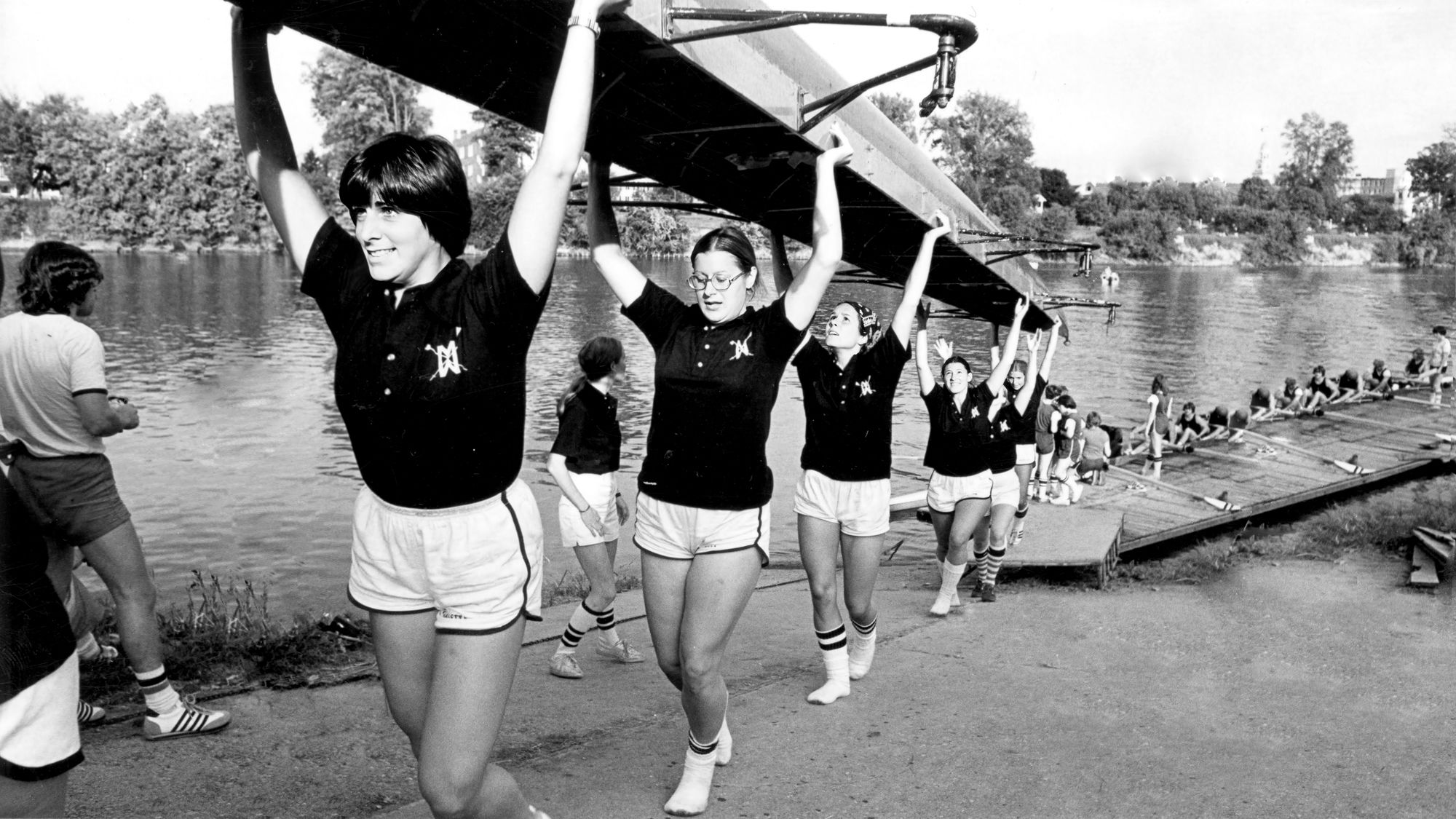
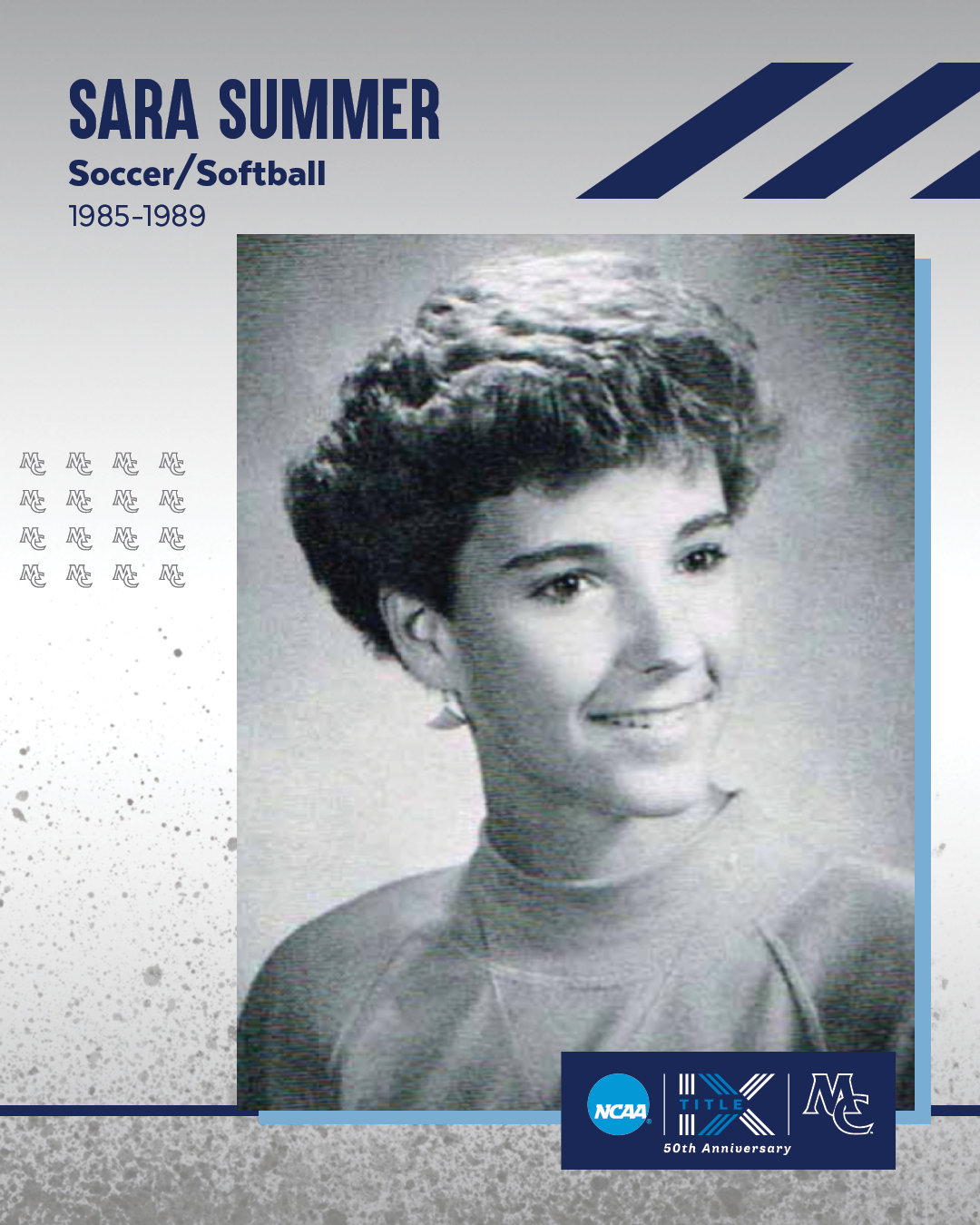
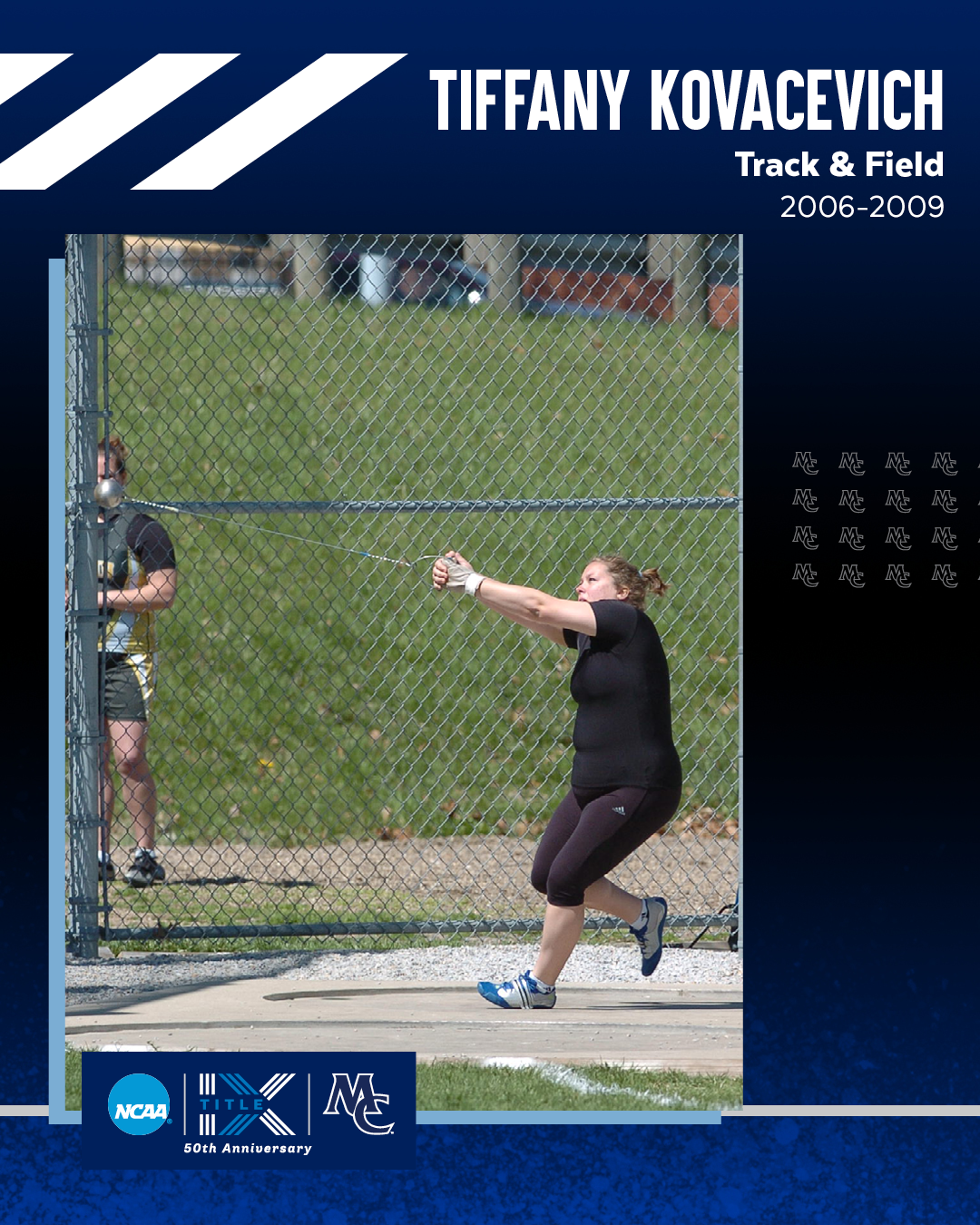
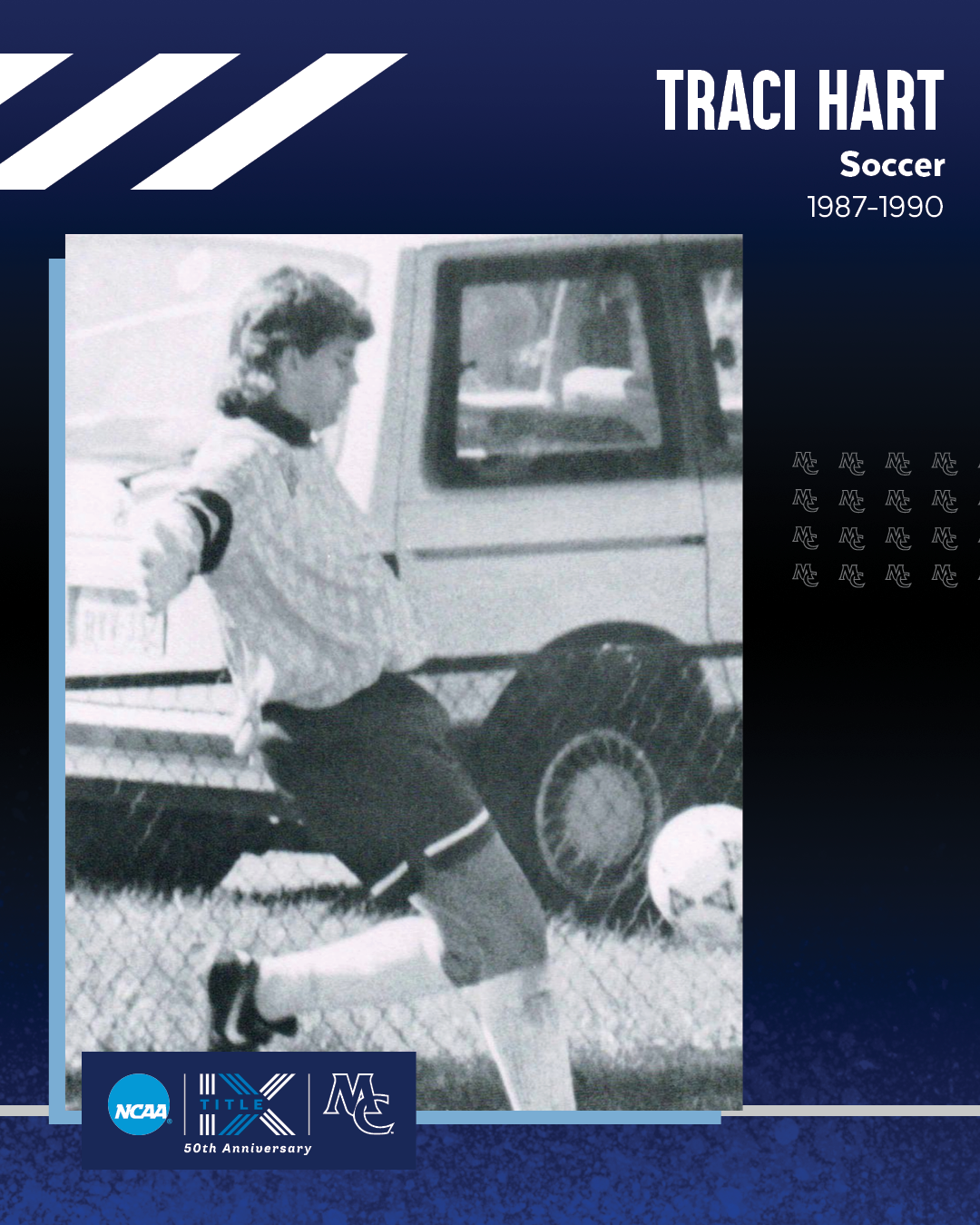
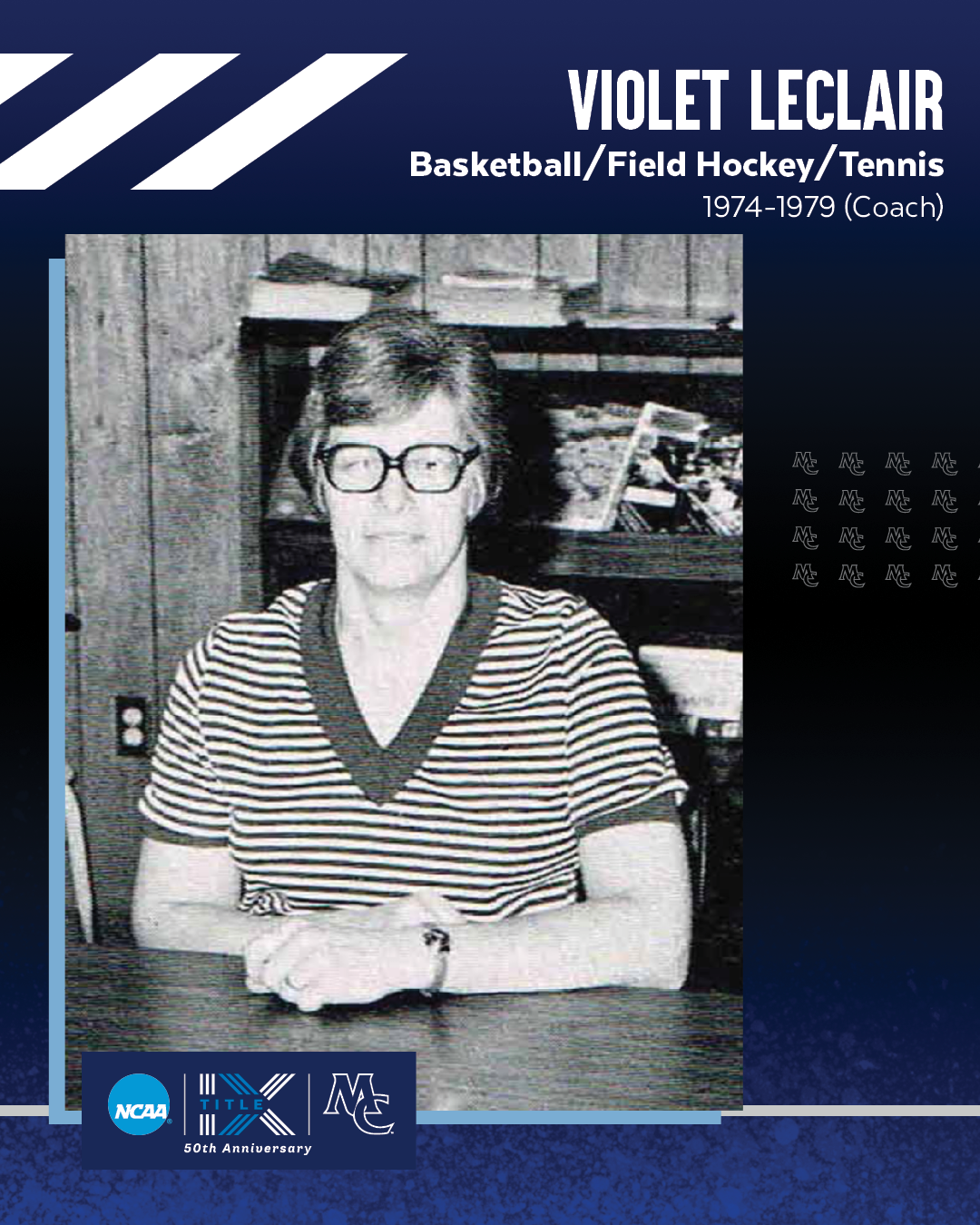
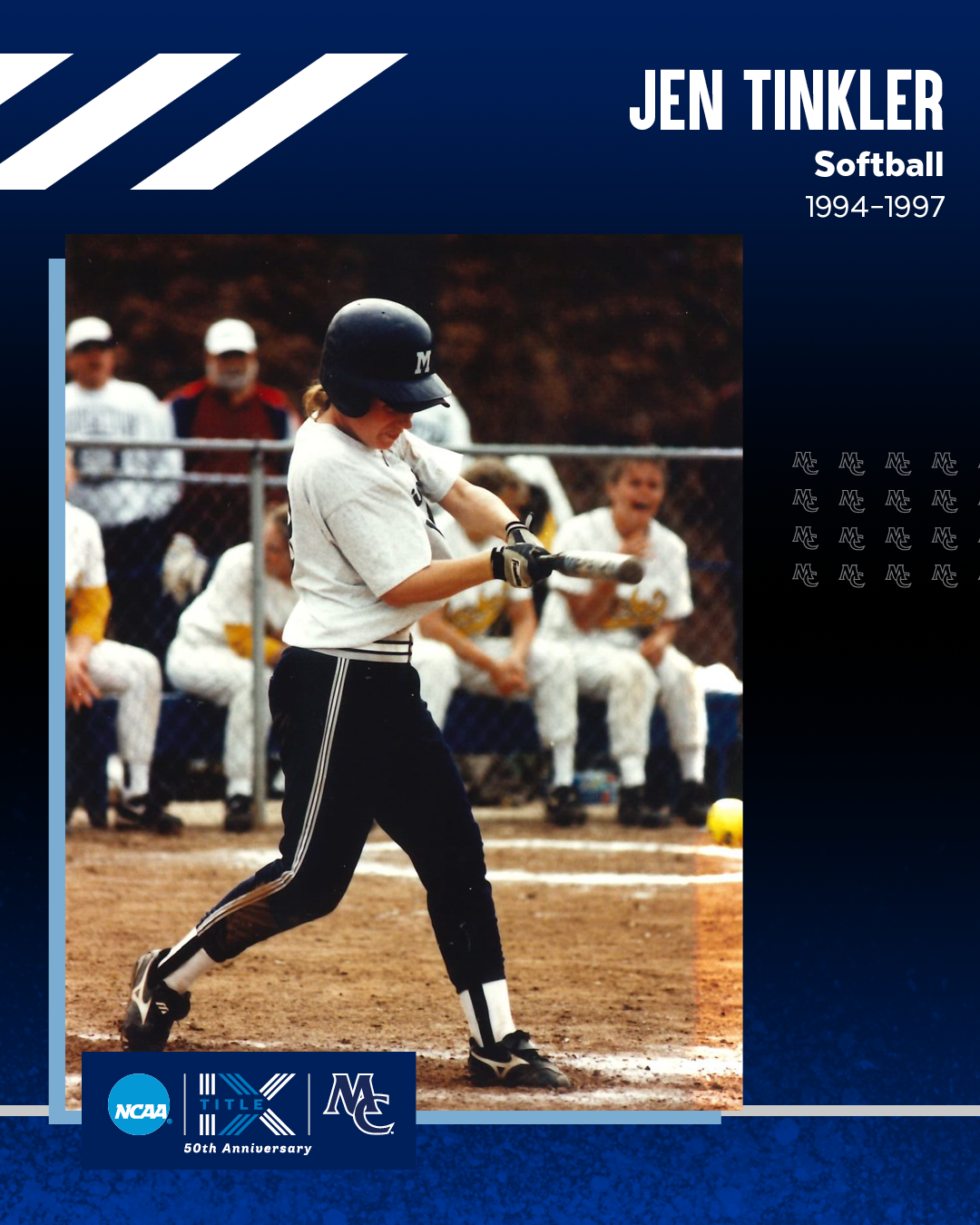

Sara Summer ’89 earned four varsity letters in softball while at MC. She also played soccer all four years. She played an integral role in the transition of the women’s soccer program from a club sport to a varsity sport in 1988. Summer was selected first team All-OAC and Academic All-OAC as a senior in 1988, the first season that women’s soccer was a varsity sport in the conference. Summer played outfield on MC’s softball team, earning first team All-OAC and first team All-Region in 1989 when she batted .346. She is a member of the College’s Athletic Hall of Fame.
Sara Summer ’89 earned four varsity letters in softball while at MC. She also played soccer all four years. She played an integral role in the transition of the women’s soccer program from a club sport to a varsity sport in 1988. Summer was selected first team All-OAC and Academic All-OAC as a senior in 1988, the first season that women’s soccer was a varsity sport in the conference. Summer played outfield on MC’s softball team, earning first team All-OAC and first team All-Region in 1989 when she batted .346. She is a member of the College’s Athletic Hall of Fame.

Tiffany Kovacevich ’09, a five-time all-conference selection, is arguably the best female shot put and hammer throw athlete in school history. She holds the school record in the shot put with a throw of 40 feet, 8.75 inches. She is a member of the College’s Athletic Hall of Fame.
Tiffany Kovacevich ’09, a five-time all-conference selection, is arguably the best female shot put and hammer throw athlete in school history. She holds the school record in the shot put with a throw of 40 feet, 8.75 inches. She is a member of the College’s Athletic Hall of Fame.

Considered one of the OAC’s best goalies, Traci Hart ’91 was first-team all-conference three years and second-team one year. She recorded a school-best 242 saves in 1989 as the Pioneers went 6-1 to earn their only league title. She is the career leader in saves with 614. Hart is a member of the College’s Athletic Hall of Fame.
Considered one of the OAC’s best goalies, Traci Hart ’91 was first-team all-conference three years and second-team one year. She recorded a school-best 242 saves in 1989 as the Pioneers went 6-1 to earn their only league title. She is the career leader in saves with 614. Hart is a member of the College’s Athletic Hall of Fame.

Violet LeClair played a vital role in many female athletes' lives during her Marietta College career. She was a major supporter of Title IX Legislation, which helped better opportunities for women in athletics. Her records are not impressive at first glance. Still, she fielded teams before women’s athletics had recruiting budgets and when the Pioneers played much larger schools like Ohio State, Dayton, and Ohio University. So LeClair’s influence at Marietta is judged more on how she shaped the athletic teams and helped shine a positive light on the athletic teams at a time when many were learning to adjust to the rise of women’s athletics. She is a member of the College’s Athletic Hall of Fame.
Violet LeClair played a vital role in many female athletes' lives during her Marietta College career. She was a major supporter of Title IX Legislation, which helped better opportunities for women in athletics. Her records are not impressive at first glance. Still, she fielded teams before women’s athletics had recruiting budgets and when the Pioneers played much larger schools like Ohio State, Dayton, and Ohio University. So LeClair’s influence at Marietta is judged more on how she shaped the athletic teams and helped shine a positive light on the athletic teams at a time when many were learning to adjust to the rise of women’s athletics. She is a member of the College’s Athletic Hall of Fame.

Jen Tinkler ’97 played four years of softball for Hall of Fame coach Jeanne Arbuckle earning three varsity letters. She was a two-time All-Region shortstop earning third team honors in 1995 and second team recognition in 1996. A mainstay in the Pioneer middle infield for three years, Tinkler was named second team All-OAC in each of her final three seasons in the Navy Blue and White. She led the team in hitting with a .387 batting average in her junior year. Tinkler led the Pioneer softball team to unprecedented heights during her career. The 1995 team went 13-3 in the OAC, earning the number one seed and the right to host the conference tournament. The following year, Marietta went 15-3 in the OAC, won the OAC Tournament championship, and finished with an overall record of 15-9. The 1996 team was the first women's team in school history to make the NCAA Tournament in any sport.
Jen Tinkler ’97 played four years of softball for Hall of Fame coach Jeanne Arbuckle earning three varsity letters. She was a two-time All-Region shortstop earning third team honors in 1995 and second team recognition in 1996. A mainstay in the Pioneer middle infield for three years, Tinkler was named second team All-OAC in each of her final three seasons in the Navy Blue and White. She led the team in hitting with a .387 batting average in her junior year. Tinkler led the Pioneer softball team to unprecedented heights during her career. The 1995 team went 13-3 in the OAC, earning the number one seed and the right to host the conference tournament. The following year, Marietta went 15-3 in the OAC, won the OAC Tournament championship, and finished with an overall record of 15-9. The 1996 team was the first women's team in school history to make the NCAA Tournament in any sport.

